The Kansas City Business Journal features John Spertus
John Spertus is the director of health outcomes research at Saint Luke’s Mid America Heart Institute and a professor at the University of Missouri-Kansas City School of Medicine. Read the interview.
Dec 26, 2019
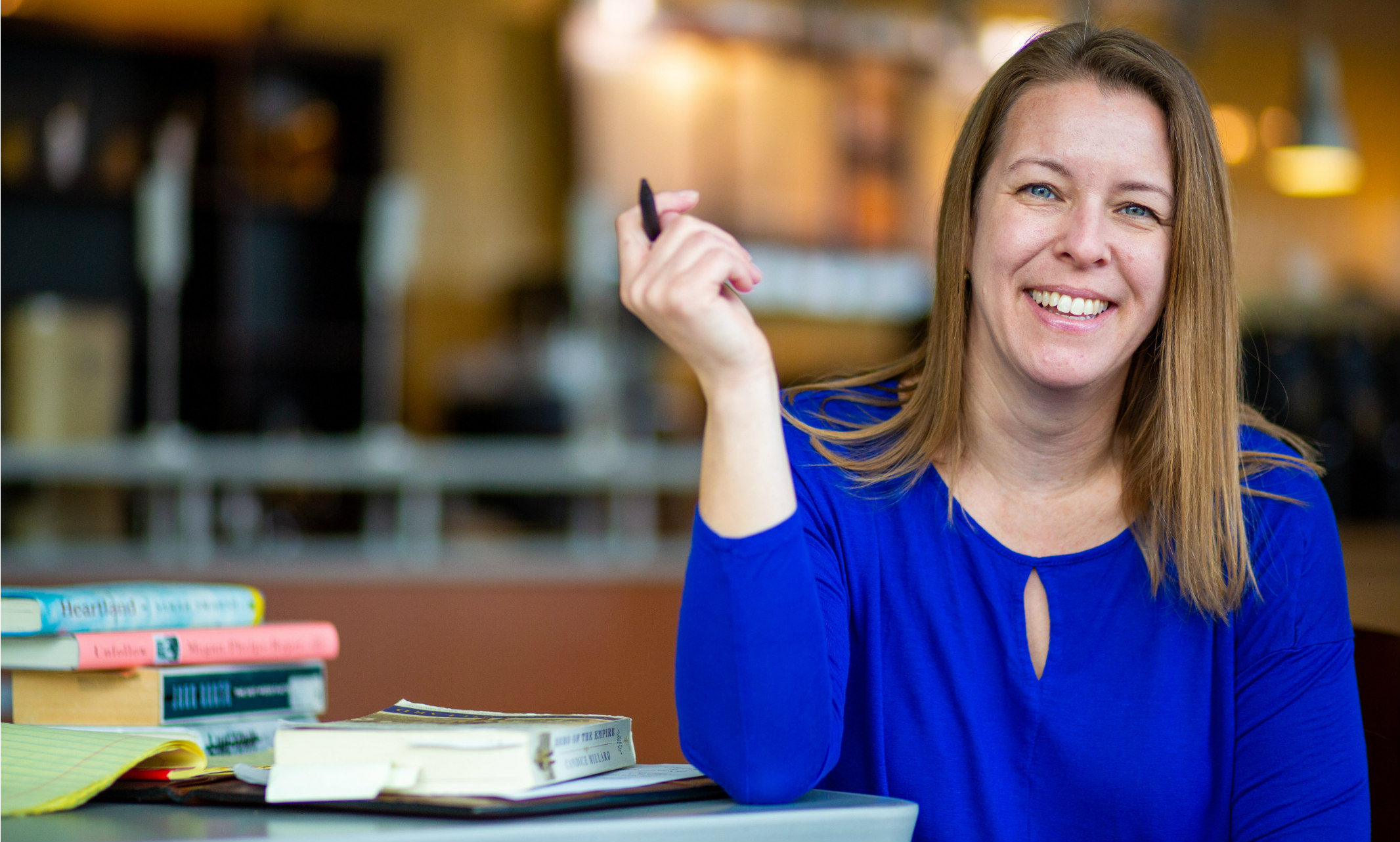
MFA leads to rich and varied freelance career
Our ongoing story starts with people from around the world, converging here at UMKC. Get to know our people and you’ll know what UMKC is all about.
Name: Anne Kniggendorf '14UMKC degree program: MFA in Creative Writing and Media Arts, College of Arts and Sciences
Alumna Anne Kniggendorf attended the MFA Creative Writing program on the G.I. Bill. While she always had a passion for writing, she did not see herself as a journalist. But her freelance career has been full of delightful surprises.
Tell us about your current position.
I’m a freelance writer in Kansas City. I started freelancing for the Kansas City Star in 2014 and I still write for them occasionally. I write for KCUR 89.3, the Kauffman Foundation, and have written for Flatland Magazine a few times. I’ve also written for national magazines and twice for international journals.
How did you choose your field of study?
Writing has been my favorite activity for as long as I can remember. I got to a point when I was in my mid-30s when I felt that I’d hit a wall. I needed more tools to write the way I wanted to be able to.
What brought you to UMKC?
I wanted a writing program near home and UMKC seemed perfect.
What was your favorite thing about UMKC?
I enjoyed all of my classes, professors and assignments. My favorite thing was the chance to reopen the part of my mind that had to work with whatever someone else assigned me--which is what I’ve been doing ever since.
What did you learn about yourself while you were here?
At UMKC, I learned that I was holding myself back from being a writer. I saw that Kansas City is home to a community of writers who are generally willing to help each other, and that all I needed to do was show up and work to be a part of it.
“At UMKC, I learned that I was holding myself back from being a writer.” - Anne Kniggendorf
Who was the most influential faculty or staff member at UMKC?
As far as working hard and diligently, Whitney Terrell encouraged me more than anyone else. He was in charge of The Kansas City Star internship at the time, and he selected me for that program.
How did the internship affect how you viewed the field?
I don’t think I’d be doing what I’m doing now if I hadn’t had the opportunity at The Star. Learning how to work with an editor and write under a deadline was a lot different from writing for leisure. I hadn’t worked with deadlines since my early 20s, and I had to write a book review every week for an entire semester. At the same time I was learning how to work that hard at writing, I was writing my thesis and taking two or three other classes.
What are the challenges of your field?
I told myself until I was about 37 that writing isn’t a job. I think lots of people in the arts feel this way, because it’s culturally accepted that no one in the arts makes much money. The exceptions are so few. There’s no writer who expects to grow up to be the next Stephen King.
What are the benefits?
Every assignment I take is different from the last one, and I meet new people all the time who are really fascinating and eager to talk to me about what they love doing.
What has been one of your favorite freelance assignments?
I just did a story for KCUR with Megan Phelps-Roper (granddaughter of the late Fred Phelps of Westboro Baptist Church) about her new book “Unfollow.” Because I grew up in the area and heard about the Westboro members’ picketing, I was really interested in being able to sit with her ask about her experiences.
I had a great learning opportunity when I did a story about a buffalo ranch. Amy and Michael Billings are interested in conserving bison in an effort to preserve the ecosystem of their land. As it turned out, conservation and slaughter are compatible. If you want to save something, you need to eat it.
How did UMKC help you reach your current position?
In a very real way, the internship at The Star that I got while I was in the program put me on the path I’m on now, but beyond that, the feedback about my work from the professors and other students really highlighted my strengths and weaknesses in ways I hadn’t seen before.
What are your goals for the future?
I want to keep writing for media outlets and organizations. I’m also working on two books. “Secret Kansas City,” which is part of a series about weird, mysterious, unexpected or goofy stories about individual cities, will be published in fall 2020. The publisher found me and asked me to write it.
I’ve been working on my own book for six years. It’s about the relationship between military service and the liberal arts. I think’s there’s a connection, and I don’t think it’s smart to separate them. I have the whole narrative in place, but I just don’t think it’s as succinct as it needs to be.
Would you recommend the MFA program?
Yes, it strengthened my writing in a lot of ways. The process of giving and receiving feedback was helpful. But one of the things that was really significant was getting the opportunity to write across genres. It’s been super valuable and not every MFA program has that. While I wasn’t initially interested in poetry, I enjoyed those classes. And there’s a lot to be learned from poetry courses – like word economy – that have helped in journalism. Playwriting and learning about writing dialogue helped with choosing quotations to support the ideas in my articles. Every day when I’m writing I’m thinking what can I do to draw people into the story? What’s the point that will make someone care enough to keep reading?” Those are things I learned in the MFA program.
“Every day when I’m writing I’m thinking what can I do to draw people into the story? Those are things I learned in the MFA program.” - Anne Kniggendorf
What is one word that best describes you?
Tenacious.
Do you have a motto you live by?
Don’t panic...
What is your advice for a student entering UMKC?
If you study what you really want to know about, whether that’s in a larger sense like your degree program, or on a smaller scale like topics you choose for papers, you’ll learn more and work harder than if you study something you imagine would be good to know, or that someone else wants you to learn about.
Dec 20, 2019
Hours and services limited during break
The University of Missouri-Kansas City will conduct reduced operations, with most offices and departments closed, from Dec. 25 through Jan. 1. Normal business operations will resume on Jan. 2.
December 25 through January 1 has officially been designated as winter break for the University of Missouri System. The campus will be closed with exception of a few offices. Here are a few more details about specific services.
Emergency
In case of emergency, contact UMKC police at 816-235-1515.
UMKC Dental Clinic
UMKC School of Dentistry Clinic reopens at 8 a.m. Jan. 2.
Year-End Donations
You are welcome to make on-line donations via credit card here.
The Office of Gift Processing will only be available Monday, Dec. 30, and Tuesday, Dec. 31, from 8 a.m. to noon to accept year-end gifts. Inquiries can be directed to (816) 235-1566 or umkcgiftprocessing@umkc.edu. The UMKC Foundation will also be taking calls at (816) 235-5778.
Any checks must be in an envelope postmarked prior to Dec. 31, 2019 in order to be credited in the 2019 tax year.
Please address donations to:
UMKC Office of Gift Processing112 Administrative Center5115 Oak StreetKansas City, MO 64112
For any stock gifts or wire transfers, please contact Katherine Walter at walterka@umkcfoundation.org. Stock gifts must be received into the UMKC Foundation’s brokerage account by Dec. 31, 2019 to be counted in the 2019 tax year. Mutual funds should be initiated no later than Dec. 20 to be transferred on time.
Thank you for supporting UMKC and enjoy the winter break!
Dec 20, 2019
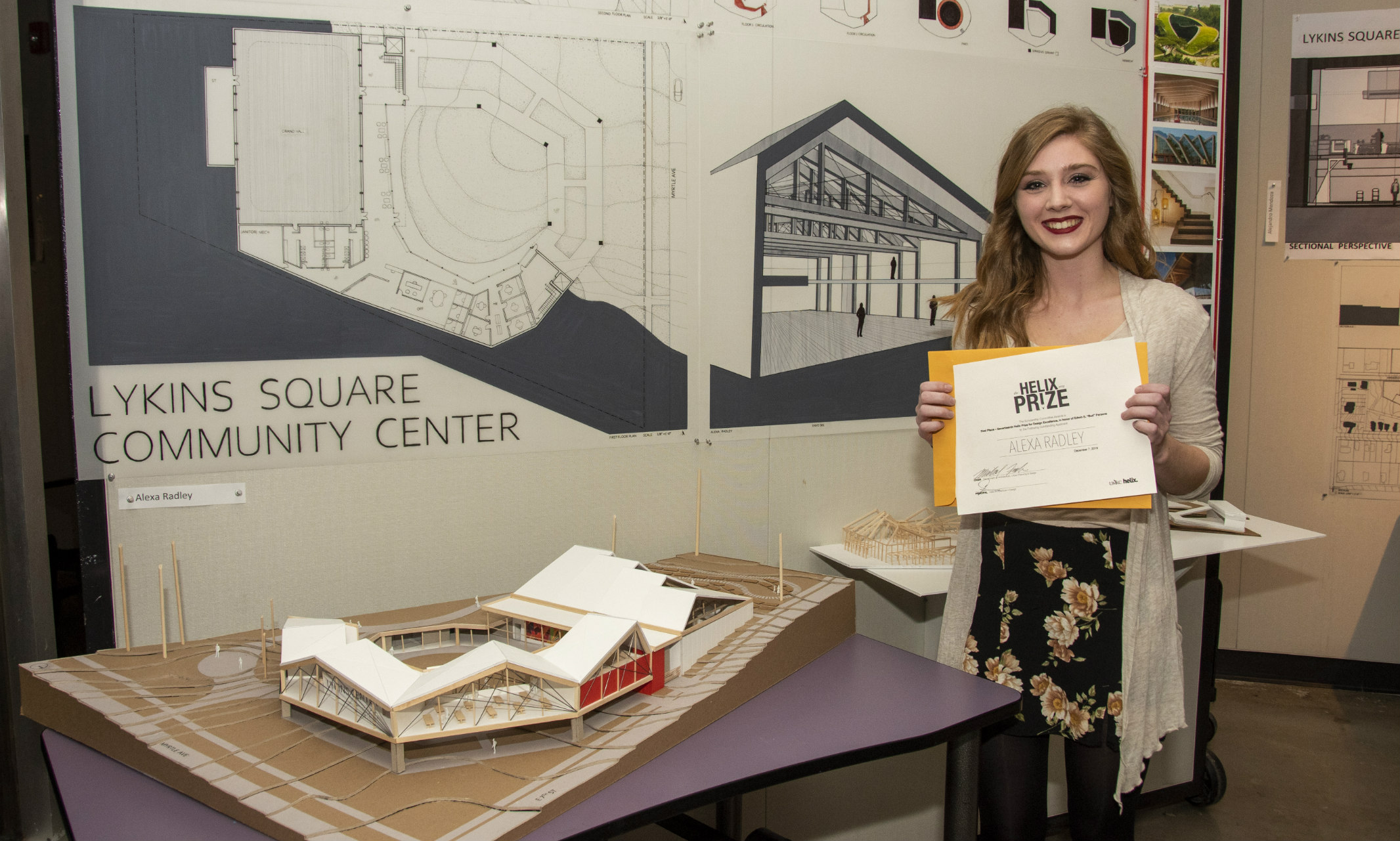
Winner Alexa Radley thrives in challenging program
Alexa Radley carefully lifts the roof of the model of her prize-winning design in the unusually quiet studio space of Katz Hall. She points to colorful, geometric art that spans a large section of the wall.
"I suggested having a local artist create a mural here,” she says of her design for a community center in the Lykins neighborhood in Northeast Kansas City. “I think that would really help make it their own.”
Museum board, basswood, heavy-gauge wire and tiny plastic people are the tools that the students of the Architecture, Urban Planning and Development program use to translate the needs of their clients into physical solutions at the annual Helix Prize competition for the second-year students.
For this year’s class, these models — diminutive in scale — represent the strengthening of a neighborhood in the development of a new Lykins Square Community Center.
“While this is not a real project, we did meet with representatives of the neighborhood association, and they gave us feedback on what the neighborhood would want,” says John Eck, associate teaching professor. “The neighborhood owns the site and sees it as a possible ‘real’ location.”
Eck says there were a couple of interesting challenges with this project, especially as the residents included gym space as part of their wish list.
“One of the biggest challenges was the insertion of a fairly bulky building into a very modestly-scaled residential neighborhood. No one wants a giant new building looming over their home, but at the same time the design needed to accommodate the program and address the large scale of the park.”
In addition, the slope of the site is significant.
“There’s a drop of about twenty feet from the back of the site to the front sidewalk,” Eck says. “Finding a way to “step” the program down, both indoors and outdoors, while maintaining accessibility for all is no small feat.“
Radley came to the AUPD program after a year in community college. With equal strengths in art, design and math, she thought architecture might be a good fit.
“I interned with A3G in Liberty, Missouri,” she says. “It’s a small firm of women architects. It was a great way to see if I would enjoy the field.”
Her experience assured her that architecture was her path. She was accepted into the program and will continue to Kansas State University as part of a partnership between the two universities.
"You get really close to the people in the program." -Alexa Radley
For the Helix Prize, students had seven weeks to outline their objectives and approaches, complete structural drawings and build their models.
“It’s a big project,” Radley says. “There are a lot of small components. Dealing with the topography of the sloped site was a real challenge.”
When she began her design, she envisioned the roof as a ramp, but as the design evolved, she incorporated angular silhouettes to mimic the roofs of the neighborhood.
“That’s when I really started to love my project,” she says.
Radley’s design is nestled into the landscape, creating the feeling that the neighborhood both surrounds and protects it. Her building has more movement than some of her classmates, whose designs relied largely on right angles. She included orange panels on the exterior as a warm and inviting accent. But one of her favorite components was the mural.
“The community representatives really love it,” she says.
This year’s jurors included Gail Lozoff, neighborhood representative; Mike Frisch, department chair, AUPD; Katie Kingery-Page, landscape architect and Kansas State University representative; and Anthony Luca. And despite what might look like an intimidating and very personal process to have professionals critique their student projects, Radley did not find the process daunting.
“Most of the jurors have been through the process, so they understand what it feels like. Their feedback is very constructive and they focus on strengths as well.”
Radley and the runner-up, Anna Greene, will both receive scholarships to Kansas State next year. Radley is looking forward to their transition.
"You get really close to the people in the program,” she says. “We’re all in the same classes and studio together, which is more intimate. Most of us are going on to K-State next year.”
While she loves the field and the program, she cautions that it’s not for everyone.
“The program itself is challenging and not everyone who has an interest decides to tough it out,” Radley says, as she carefully replaces the roof of her model. “If you’re not 100% committed, you’re not going to make it. There were 36 first-years in my class. We’re down to eight.”
Eck is not surprised that Radley is one of the remaining eight.
“Alexa’s design process and work ethic is actually what was most striking to me. She has a remarkable ability to put her head down, focus, move forward, and get it done. The end product is important, of course, but learning how to get there is even more important. Design studios are about teaching design process; the project is just a vehicle to do that.”
Dec 18, 2019
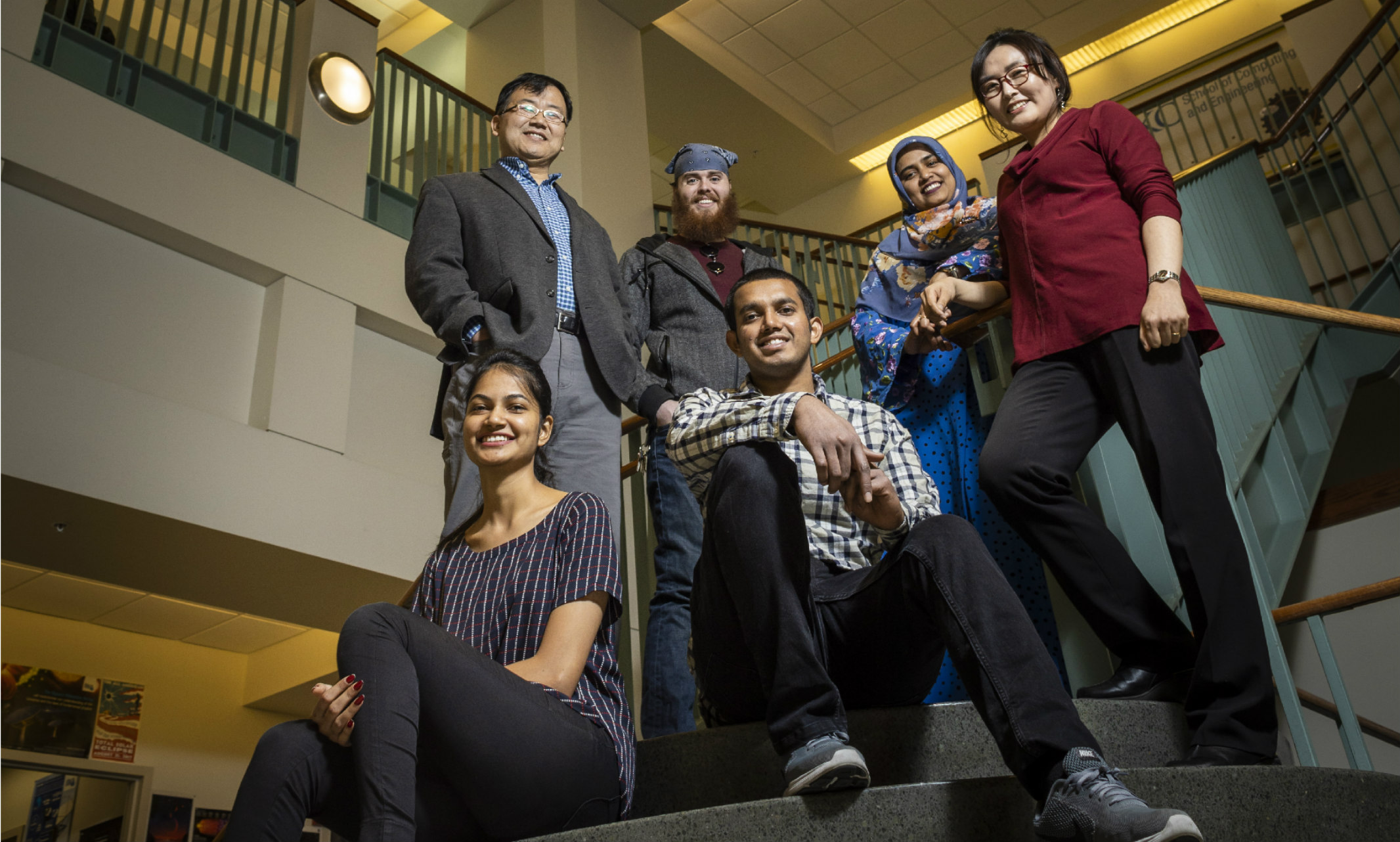
NSF funds $1.4 million project meant to improve eligibility for jobs
There are currently more than 1 million incarcerated women in the United States. According to Baek-Young Choi, associate professor of computer science and electrical engineering, women are the fastest growing segment of the prison population, increasing nearly 834% nationwide within the last 40 years. Yet prison education systems are still primarily designed with men in mind.
Choi, alongside co-principal investigator Sejung Song, Ph.D. and a group of graduate-level students, is partnering with a team of faculty from the University of Kansas on a $1.4 million National Science Foundation-funded project – led by Hyunjin Seo, Ph.D., associate professor in the KU School of Journalism – to help women exiting prison advance their technology skills in hopes of improving their eligibility for better job opportunities and their ability to support their children’s education.
“Many women going into prison were underprivileged to begin with, and then in prison there’s a lack of access to the internet,” Choi said. “This leaves women vulnerable because when they are released, it’ll be difficult for them to find good jobs and have positive influences on their children as well.”
The NSF’s advancing informal STEM learning (AISL) program that supports this project seeks to engage the public of all ages in learning STEM in informal environments, and may serve as a template for workforce preparation efforts. The scope of the program the two institutions are designing consists of curriculum planning, developing a three-course learning management system (which Baek-Young and team are building), engaging with potential program participants and potential community partners as well as leveraging regional resources for additional support.
The UMKC STEM team will co-lead education sessions and curriculum development alongside KU, build the online learning system and participate in experiential research to understand the challenges of women-in-transition with respect to acquiring technology skills and analyzing effects of different education models – face-to-face (in public libraries), hybrid (a combination of on-site and online) and online only.
“We really want this program to be informed by research, so we do a lot of research to learn what the participants’ needs and interests are, and incorporate that into the STEM curriculum,” Choi said. “We also want to know what the most effective way of teaching STEM is for this population, so we’re testing multiple modes of education.”
Course 1 - Introduction to computing
The introductory course will teach computational thinking, which is not only helpful for understanding technology but also for everyday problem solving skills. Choi said the team hopes that this program will help improve women’s self-esteem and confidence as they face new challenges and how they feel about themselves as their attachment and sense of belonging evolves in this group, which will help their employment in the long run.
Course 2 – Web basics
The course will lead women in learning basic website elements, HTML and development environments.
Course 3 – Web advanced
The course will teach women website building for business, which would include form building and use of FinTech tools. This course is a combination of hybrid and online-only courses.
The duration of each course depends on the needs of the women, but the project team is anticipating 12 to 16 weeks per course while the full project, including research and development, will last about three years. The team kicked off the project in September 2019, and will use this first quarter for planning and preparation, followed by leading educational sessions and, finally, analyzing results by August 2022. They’re also hoping to garner industry and other support to enrich and sustain the program. Choi said they’ll have potential users try out the learning management system before it officially launches.
Learn more about this project
Dec 17, 2019
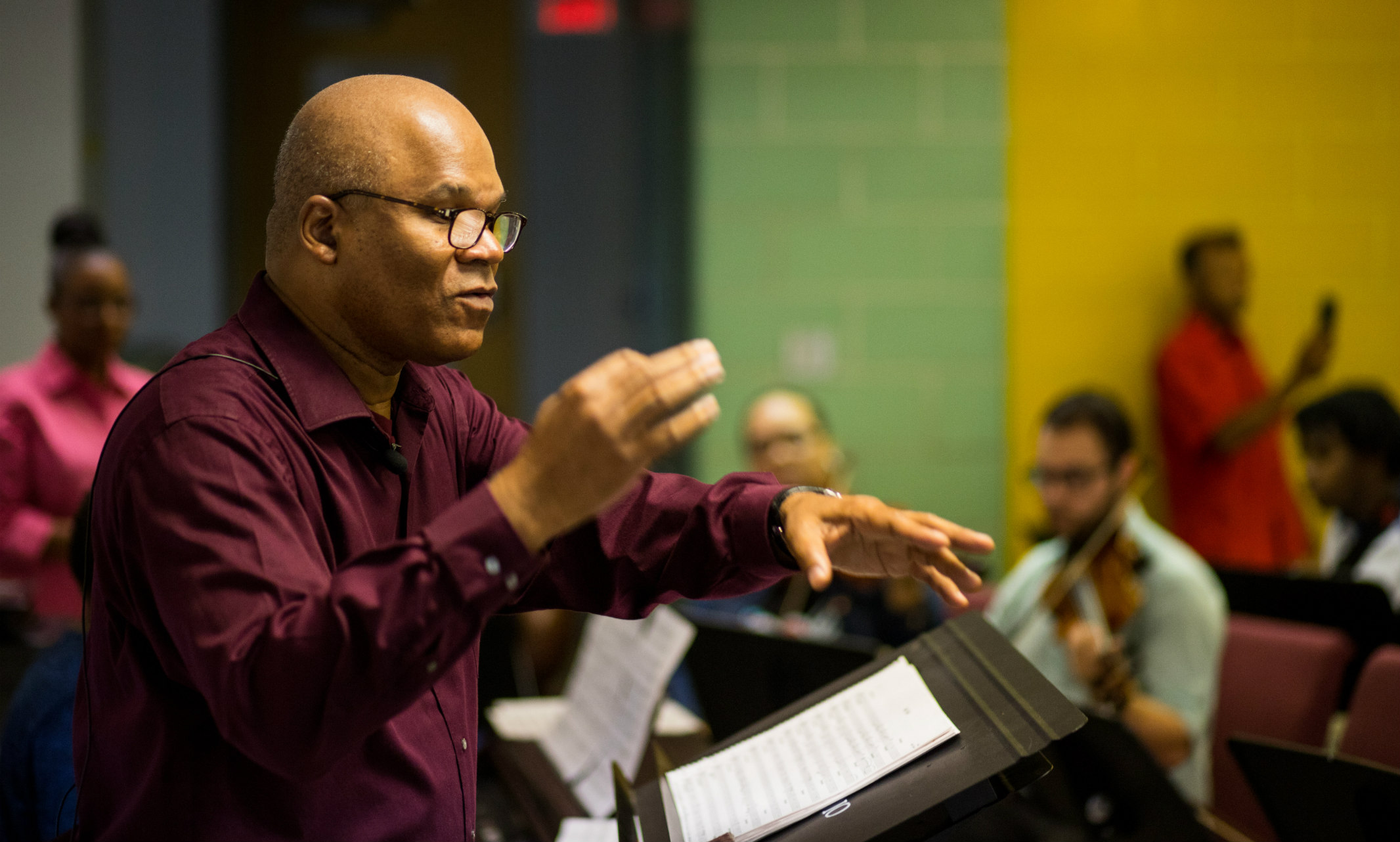
Darryl Chamberlain has helped hundreds of students learn to play instruments
At 10 years old, Darryl Chamberlain (B.A. ’15, ’16) walked to school composing music in his head. Despite having no formal training and no instruments in his home, the music still came to him at an early age. Now, more than 40 years later, Chamberlain is actually composing some of those melodies for the Kansas City children in his A-Flat Youth Orchestra.
Since its creation, Chamberlain has helped more than 200 students learn to play instruments, many of whom wouldn’t have had access to music lessons otherwise.
Chamberlain’s journey from 10-year-old sidewalk composer to volunteer orchestra director is an unlikely one, made possible through remarkable hard work and tenacity.
A winding road to music (and back)
At 17, Chamberlain begin attending a church full of energetic young people like himself. The church had a youth choir Chamberlain longed to join, but he didn’t know how to sing or play an instrument.
Instead, he hung around the choir practices and one day noticed a guitar leaning in a corner. With a few minutes’ instruction from the bass guitarist and the devoted study of a Mel Bay guitar book, Chamberlain taught himself how to play.
Then, another stroke of luck: The church needed a place to store their piano after a storm, and Chamberlain’s house was nearby. A few months later, and Chamberlain had taught himself piano, too.
“There are among us Beethovens and Bachs and Mozarts and Schuberts and Schumanns and so many more. They are among us, and sometimes they get a chance to surface, because they came from a community that supported music and allowed them to grow.” – Chamberlain
Over the next few decades, Chamberlain continued to learn and teach music while he, as he puts it, “created a life.” He got married, worked as an auto mechanic, earned an associate’s degree from the Electronics Institute and got a job at Texas Instruments.
Community need becomes personal mission
In 2004, Chamberlain moved back to Kansas City from Texas and found himself at the American Royal Parade. When he had left Kansas City back in the 1980s, the parade had been full of Kansas City high school bands. By the early 2000s, he was concerned to see none performing. He started talking to educators in the area and discovered the need for music education was great, but funding wasn’t always available.
In 2005, Chamberlain decided to create a youth orchestra for kids who might not have access to music otherwise. He began buying instruments for his project, which has now become as the A-Flat Youth Orchestra.
He purchased most of the instruments out of his own pocket, starting with just the money he earned playing piano at a local church. He was a familiar face at local pawn shops and spent hours searching listings on eBay and newspaper classifieds, looking for any instrument that looked playable (or at least fixable).
Today, the orchestra owns enough instruments to outfit two-and-a-half concert bands. Bassoons, violins, cellos, guitars, flutes, drums and more, are all owned by A-Flat Music Studio, Inc. and loaned or rented to students who want to play music. Recently, a woman saw a Kansas City Star story about the orchestra and donated a harp.
On Saturdays, the instruments show up in places like the W.E.B. DuBois Learning Center, in the hands of dozens of young people, many of whom wouldn’t have had access to an instrument elsewhere. More than 30 students play in the orchestra, ranging in age from seven to 19. Chamberlain has recruited five other teachers to help instruct various sections.
His motto? “There will not be a child in this city who wants to study music but can’t because money is an issue.”
Chamberlain’s love for teaching is apparent. It’s part of what led him to UMKC in 2009, eventually earning two bachelor’s degrees: one in secondary education–social sciences and another in history. His studies at UMKC were a natural fit, he says, giving him access to formal education in the areas of art, history and teaching that he’s informally enjoyed his entire life.
Chamberlain with members of the A-Flat Youth Orchestra at a performance at the Kauffman Center for the Performing Arts.
The power of giving kids a chance
When asked about the particularly memorable moments from his 14 years directing the orchestra, a few come to mind, Chamberlain says: The day a student who had been struggling blurted out, “I’m doing it! I’m actually reading!” Receiving an invitation to a graduation party for one of his students who had earned her M.D. Seeing the students play at the Kauffman Center in bow ties.
Once, a young man asked him why he “dresses up” for rehearsal. Chamberlain explained to him, “I dress up for you, because it’s the kind of respect I want to extend to you. I want you to know you’re worth it.” The next week, that same student came to class in slacks and shiny dress shoes, looking, as Chamberlain put it, “like a million bucks.”
The important thing, Chamberlain says, is giving kids a chance. Because if we can teach music, we can also teach discipline, character, tenacity, all those little things that make a person — and a community — great. In the process, you might help a child discover a part of themselves they didn’t know existed.
“There are among us Beethovens and Bachs and Mozarts and Schuberts and Schumanns and so many more,” Chamberlain says. "They are among us, and sometimes they get a chance to surface, because they came from a community that supported music and allowed them to grow.”
In 2023, Chamberlain received the Hero Award from Atlas Holdings for the extraordinary impact he is making in the Kansas City community. The award came with $25,000, which Chamberlain put into a savings account as part of his studio’s building fund effort. A-flat studio is outgrowing the space they currently have and are working towards getting a more adequate space.
This story originally appeared in Perspectives magazine, vol. 29. It was updated March 2024 to reflect Chamberlain’s 2023 award.
Dec 17, 2019
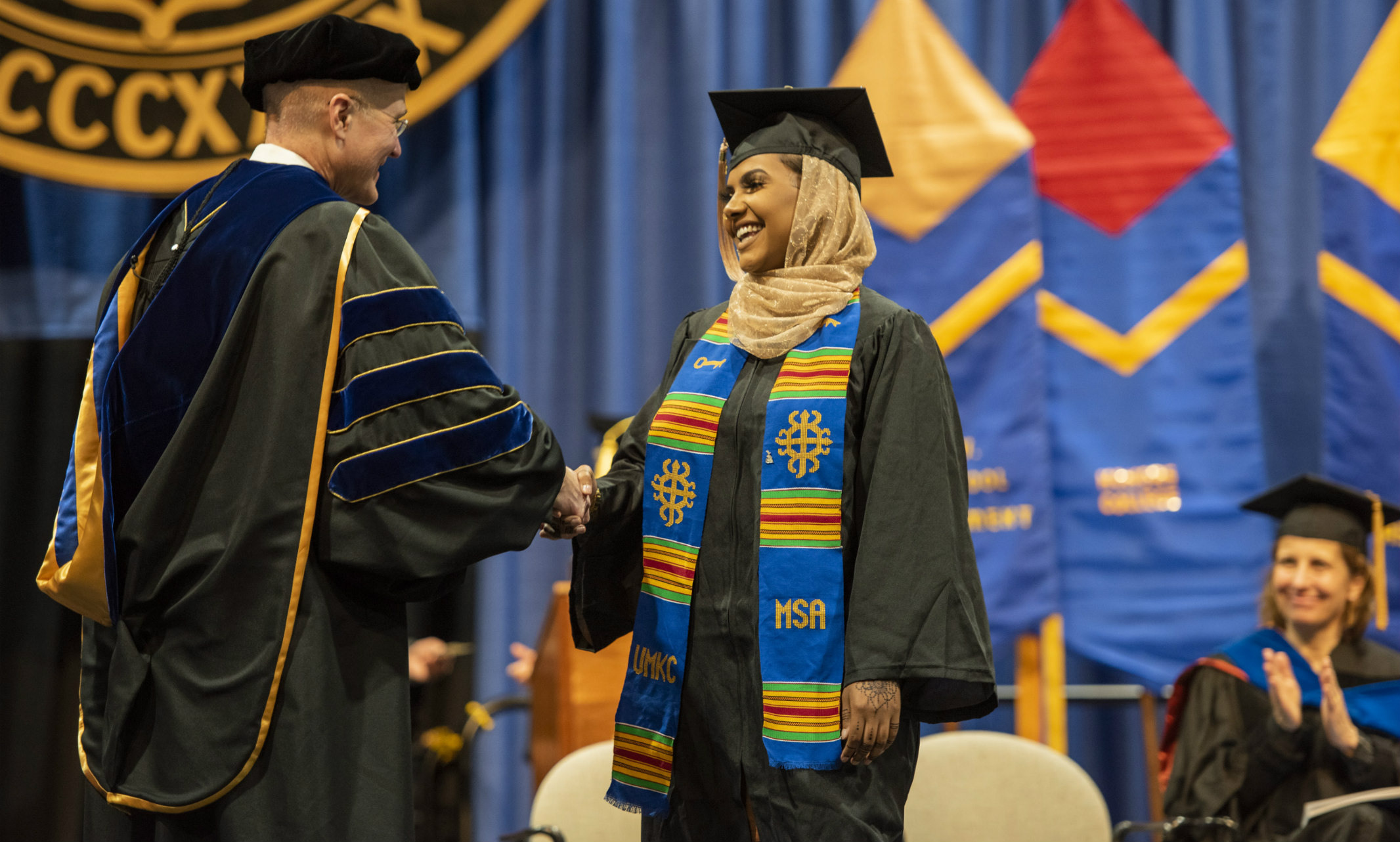
Class of 2019 graduates honored
Nearly 1,000 students received their degrees during University of Missouri-Kansas City mid-year Commencement exercises on Saturday, Dec. 14.
Festivities began with the College of Arts and Sciences Graduation with Distinction Luncheon where alumna Liz Cook (M.F.A. ’14) offered advice for the 70 students graduating with honors.
“You may not have all the answers right now, but you have the skills to find them,” said Cook, who works at the Federal Reserve Bank of Kansas City and as a writer for The Pitch.
Liz Cook, pictured left, with Chancellor Agrawal and fellow College of Arts and Sciences alumna, Anne Kniggendorf, pictured right.
Among the students graduating with recognition were the Dean of Students 2019 Honor Recipients. Faculty and staff nominate students for their academic excellence, leadership and service. Ten Roos were honored this fall.
Shahodat Azimova, School of Biological and Chemical Sciences
Shelby Chesbro, School of Medicine
Jordann Dhuse, School of Medicine
Lindsey Gard, School of Biological and Chemical Sciences
Fiona Isiavwe, Bloch School of Management
Leah Israel, School of Biological and Chemical Sciences
Anna Lillig, School of Nursing and Health Studies
Zach Randall, School of Medicine
Marcella Riley, School of Medicine
Landon Rohowetz, School of Medicine
Student crowd surfs in celebration outside Swinney Center after graduation.
On Saturday, Swinney Center was packed with students and their families celebrating the milestone of graduation. Chancellor Agrawal congratulated students saying, “You are ready to take on the world.”
During the Henry W. Bloch School of Management ceremony, alumnus Mike Plunkett (B.S. ’91) addressed students. Plunkett is the co-founder and COO of PayIt, an award-winning digital government platform that simplifies doing business with state, local and federal governments. As students move forward in life, he encouraged them to:
Dream: Get in the habit of visualizing attainable goals on a daily basis.
Work: The absolutely necessary step to making your dreams a reality.
Hope: Have the determination to be positive in life, even when things aren’t going well.
Give: Enrich your life by giving to others.
Alumnus Mike Plunkett offers advice to the class of 2019.
Student speaker Ian Njoroge encouraged his fellow graduates saying, “Believe that you will find opportunities. Look for opportunities and you’ll see that opportunities are looking for you.”
Dec 17, 2019
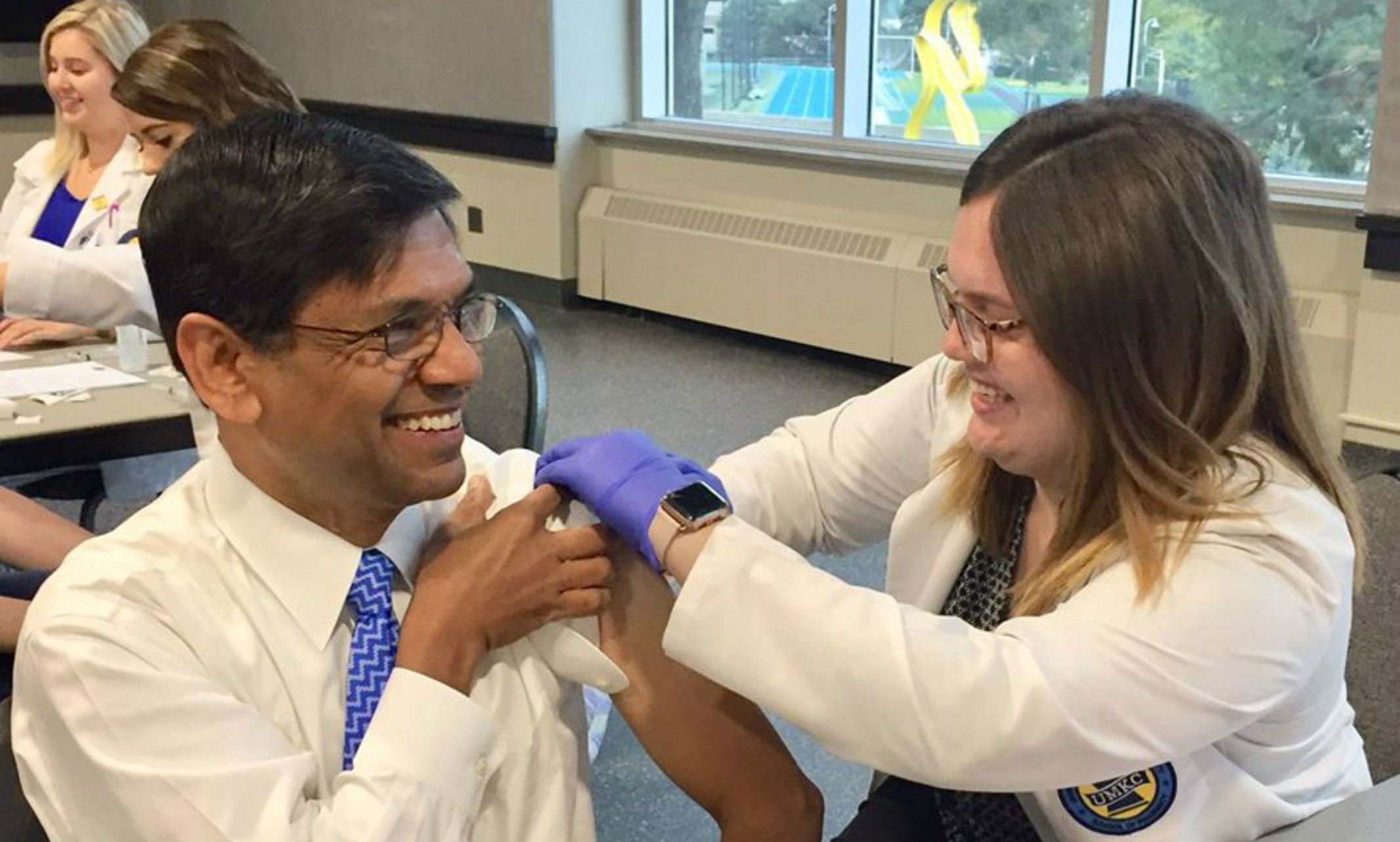
School held 59 flu-shot events throughout the state
‘Tis the season for colds and flu. And this fall, UMKC School of Pharmacy students were again busy battling the bug.
Third-year pharmacy students participate each year in a pharmacy-practice experience that includes learning to administer immunizations. This year, that involved giving 2,676 flu shots to patients at 59 immunization events throughout Missouri.
This is the eighth year the School of Pharmacy has been part of the flu shot initiative. It started in 2011 as a collaborative effort with the University of Missouri System Healthy for Life wellness program to administer the shots to faculty and staff.
“We have enjoyed an excellent collaboration with Healthy for Life,” said Val Ruehter, Pharm.D., BCPP, director of experiential learning. “In Kansas City, we also collaborate with Children’s Mercy, where we participated in flu shot clinics for its Family and Friends program.”
The collaborations expanded this year in Kansas City to include Hy-Vee Pharmacies, where students assisted with in-store clinics. In addition, immunization events were held at the John Knox Village retirement community.
Students at the Springfield campus collaborated with Alps Pharmacies and its locations in local businesses, and senior assisted living and nursing care centers; and Walgreens and its locations in local businesses, schools, veterans organizations and homeless charities. Clinics were also held at both Lawrence Drug and Sunshine Health Mart for patients at these pharmacies.
Students from all three UMKC School of Pharmacy campuses participated. In Kansas City, students participated in 14 immunization events and administered 1,453 flu shots. Springfield campus students participated in 44 events and gave 930 shots. And students from the Columbia campus administered 293 immunizations.
“These collaborations engage students in a variety of activities and allow us to demonstrate the knowledge, skills and impact that pharmacists can have on community health and wellness,” Ruehter said. “Our students were well-prepared, engaged and represented themselves as knowledgeable health care professionals.”
All vaccines administered by students are given under required protocol with oversight by a physician. Certified immunizer faculty members take the lead in managing the protocol and supervising the student training and immunization events.
The regional American Pharmacists Association-Academy of Student Pharmacists organization honored the UMKC School of Pharmacy earlier this year with an Operation Immunization chapter award. It recognized the extraordinary contributions pharmacists provide to improving vaccination rates in their communities. The UMKC chapter also received the national recognition in 2012.
Dec 17, 2019
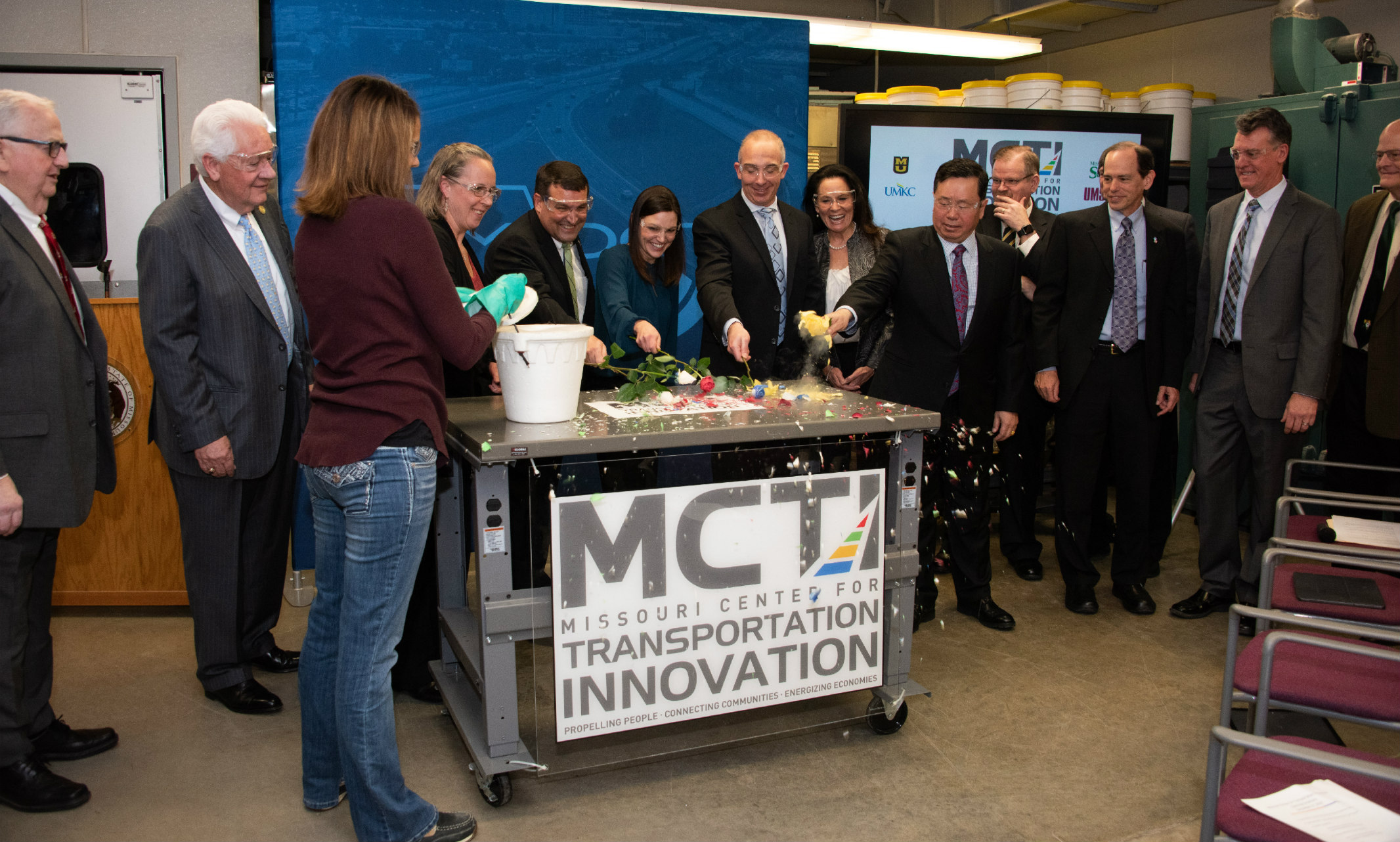
Professor John Kevern will help lead a UM System effort to bring cutting-edge technology and research to bear on the state’s transportation issues
Missouri’s roads and bridges need an upgrade, but state funding is tight. A new entity, the Missouri Center for Transportation Innovation, will combine academic research with industry partners and other stakeholders to create novel transportation solutions.
Innovative solutions are needed to address crumbling roads and bridges across Missouri. A new collaborative center within the University of Missouri System hopes to accelerate the future of transportation-related research by connecting academic minds and industry leaders.
The Missouri Center for Transportation Innovation (MCTI) will share academic research from each of the four UM System universities — UMKC, MU, UMSL and S&T— with the Missouri Department of Transportation (MoDOT) to maximize the impact of state-funded transportation research, and to attract large-scale, federal grants to pursue research on the cutting edge of transportation. Built around a common theme of innovation, MCTI research interests will include connected and autonomous vehicles; transportation safety; advanced materials for pavements and bridges; recycling and sustainability; resilience; big data in transportation; congestion relief; and transportation policy and economics.
Bill Buttlar, the Glen Barton Chair in Flexible Pavement Systems at the MU College of Engineering, will serve as the center’s director for its first three years, joined by John J. Myers, professor of civil engineering and associate dean of the College of Engineering and Computing at S&T as the deputy director. John Kevern, professor and chair of civil and mechanical engineering at UMKC; and Jill Bernard Bracy, assistant teaching professor in the College of Business Administration and assistant director of program development for the Center for Transportation Studies at UMSL; will also help lead MCTI by serving on the center’s operations cabinet.
“Combining the strengths of the UM System universities with MoDOT through the MCTI is a clear expression of our mission to foster research that benefits the people of Missouri, the nation, and the world,” UM System President Mun Choi said. “Building effective connections between our universities and the state will accelerate research breakthroughs and support economic development and improve transportation safety.”
The base funding for MCTI will be provided through the MoDOT state planning and research funding.
Myers notes that new transportation-related laboratories at both Missouri S&T and UMKC will also help facilitate the expansion of transportation-related research capabilities at all four UM System universities.
The $32 million Robert W. Plaster Free Enterprise and Research Center at UMKC, scheduled for a fall 2020 opening, will include leading-edge high-tech research and development capabilities.
And next spring, the $6.5 million Clayco Advanced Construction and Materials Laboratory (ACML), currently under construction at Missouri S&T, will combine civil infrastructure testing and analysis techniques with the development of new infrastructure materials and construction methods in the ACML.
Dec 17, 2019
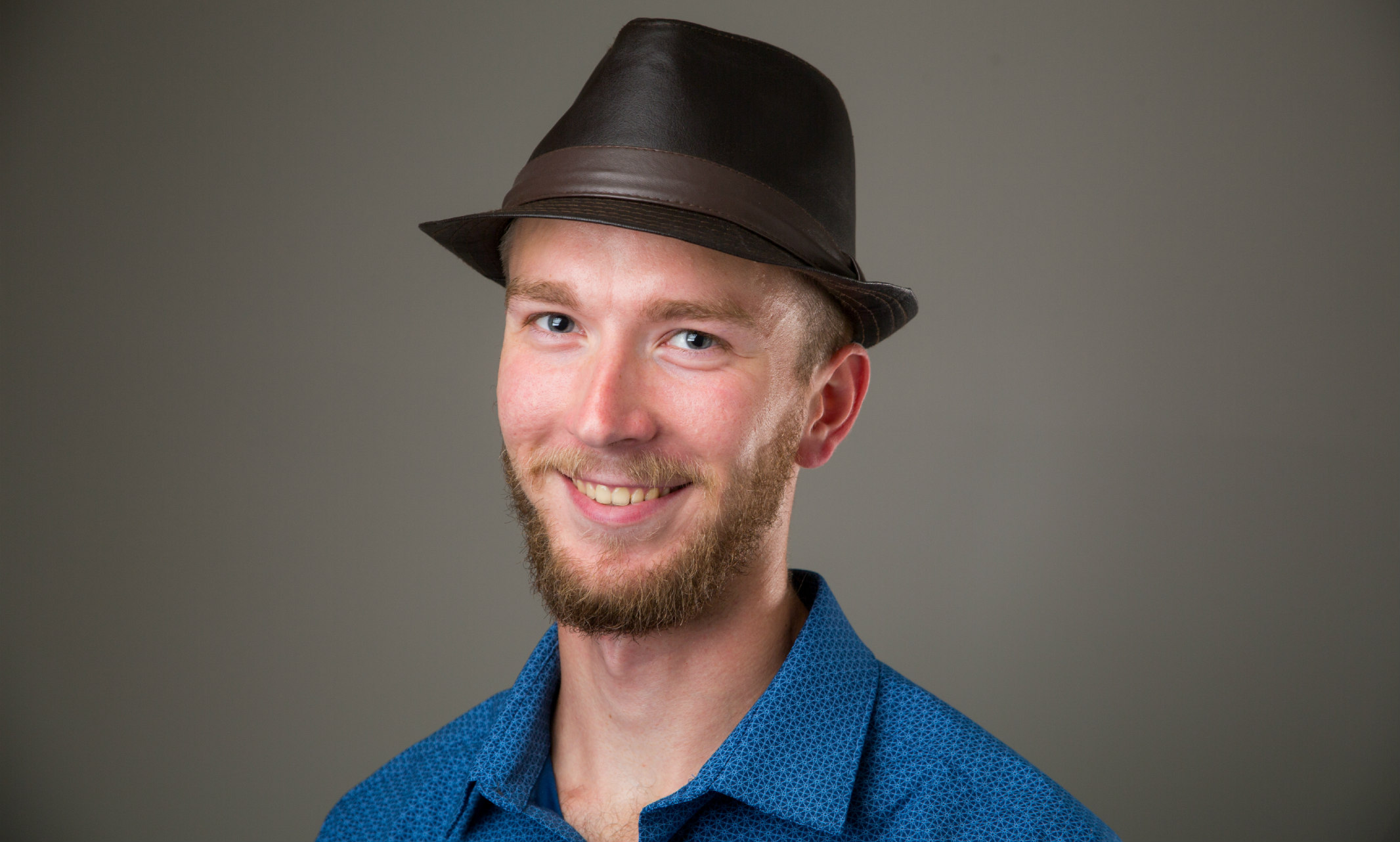
Brian Dieckman (1996-2019)
Brian Dieckman, a senior in the University of Missouri-Kansas City School of Computing and Engineering, died after a motorcycle accident in Lee’s Summit.
Dieckman was a mechanical engineering major and research assistant performing work for an Office of Naval Research project.
“Brian was a diligent, hard-working and careful student, balancing a full courseload with aspirations of studying materials science in his graduate career,” said Tony Caruso, professor and assistant vice chancellor for research at UMKC.
“He was kind and thoughtful, and his sense of humor helped him quickly make friends in his cohort,” said Stephan Young, a Ph.D. student who was Dieckman’s mentor. “Brian had an incredibly bright future, and will be greatly missed by those fortunate enough to have known him.”
Here is information about his services.
Dec 16, 2019
Area Transportation Authority cites UMKC study in story by US News & World Report
Removing fares is expected to save some families thousands of dollars per year, money that gets cycled back into the local economy; ATA's Robbie Makinen points to an impact study from the University of Missouri-Kansas City that found the measure could boost regional GDP by as much as $18 million. Read the story.
Dec 15, 2019
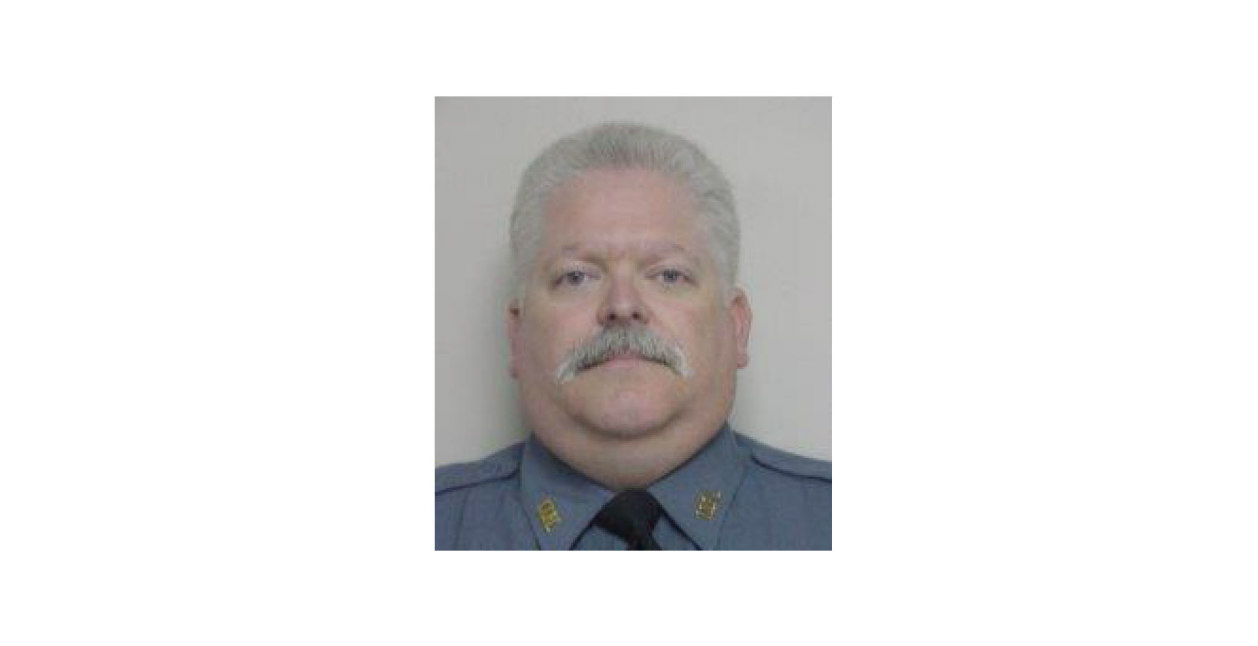
Timothy Layman (1957-2019)
Sgt. Timothy Joe Layman of the UMKC Police Department died unexpectedly due to health complications.
Layman (1957-2019) had been an officer with the UMKC Police Department for 40 years, and was the longest serving police officer in UMKC PD's history. Layman graduated from UMKC with a Bachelor of Science degree in 1985; and a Bachelor of Science degree in computer science and math in 1985. Layman graduated from the Independence Police Academy in May 1979, and began his decades-long career as a UMKC police officer. He was employed as a UMKC sergeant at the time of his death.
“Sgt. Layman had dedicated his life to proudly serving UMKC and the community,” said UMKC Police Chief Michael Bongartz. “Tim was the heart and soul of the UMKC PD, and our memories of him will never be forgotten.”
Layman’s professional memberships included International Association of Campus Law Enforcement Administrators (IACLEA), Federal Bureau of Investigation - Law Enforcement Executive Development Association (FBI - LEEDA) and National Association of Clery Compliance Officers and Professionals (NACCOP).
Layman, of Blue Springs, is survived by his wife of 40 years, Rebecca Brooks Layman; son, T.J. Layman, Jr.; and his parents.
Here is information about his services.
Dec 13, 2019
Greg Vonnahme, UMKC political science associate professor, talks with KCTV5
The House Judiciary Committee passed two articles of impeachment this morning, but what happens next? KCTV5 talked to Greg Vonnahme of UMKC about the impeachment process and set out to see what people in the metro had to say about it. View the report.
Dec 13, 2019
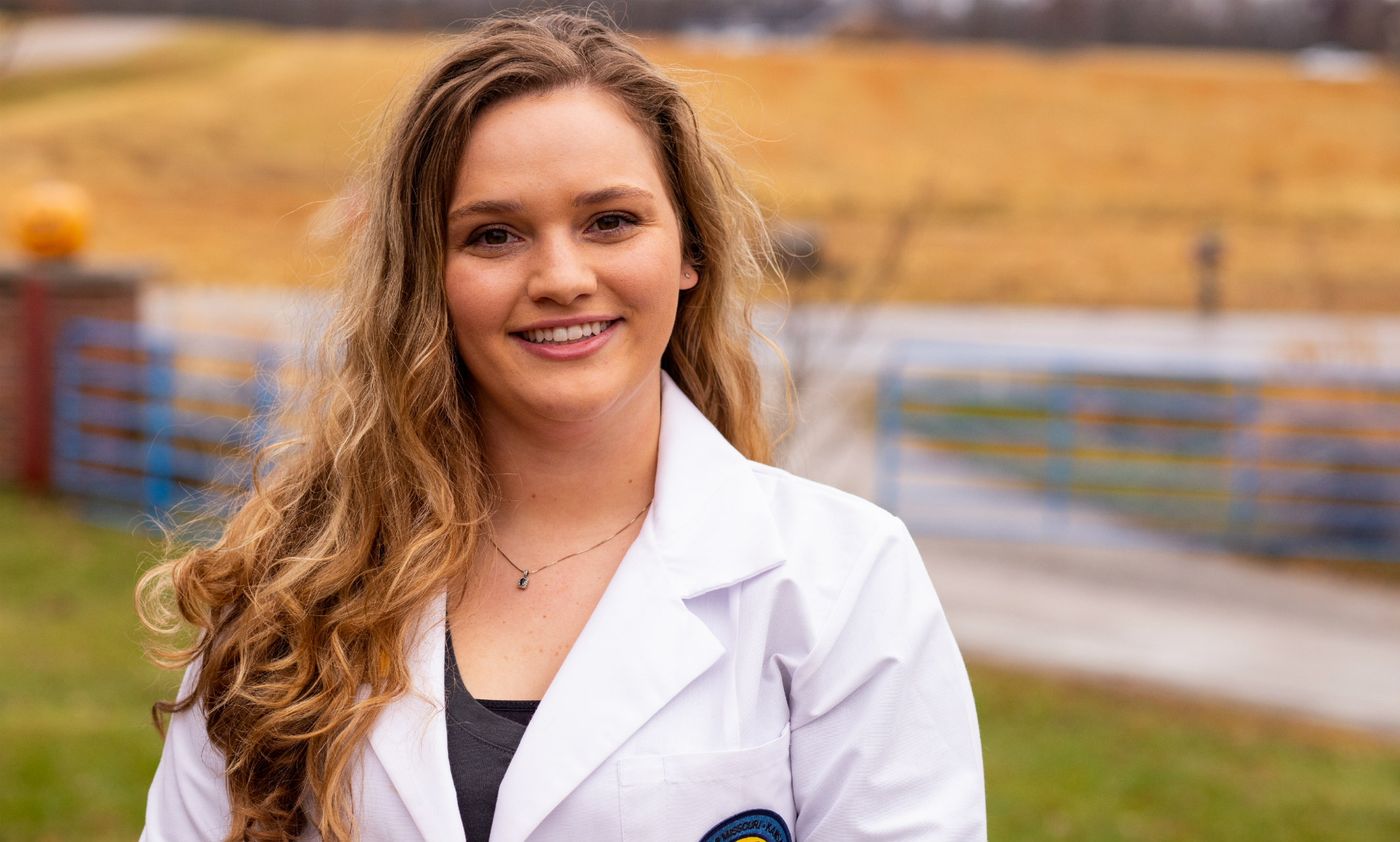
Third-year pharmacy student Raeann Kilgore discusses her passion for community pharmacy and why she chose to attend the UMKC School of Pharmacy at ...
Growing up in a small Missouri town riding horses on a cattle ranch is a part of Raeann Kilgore’s core framework. She loves rural life. She enjoys the tight-knit community she grew up in and interacting with people. So when it was time for the University of Missouri graduate to choose where she would attend pharmacy school, she chose the UMKC School of Pharmacy satellite location in Columbia.
“I chose the Columbia campus based on its location from home as well as the class size,” Kilgore said.
The petite, long-haired blonde from Green City, Missouri, isn’t interested in pursuing a career in big pharma — she would much rather have a large impact on improving access to health care in rural areas where she can connect with patients whose lives are similar to that of her family’s.
“I recognize the need for health care in these areas and have always had a strong desire to return to my community to provide health care in some form,” Kilgore said.
“While going to office hours in person isn’t really an option, my professors are more than willing to make arrangements to schedule a Zoom meeting or phone call, and they’re generally great at responding to email.”
Though she’s always been interested in medicine, it was a job shadowing experience she had with an independent pharmacy in high school that got the small-town woman interested in pharmacy. She fell in love with the personalized service and relationships the pharmacy had with its patients, employees and other care providers. That’s where she sees herself in the future.
“It helps to have relationships with patients because you have more personal connections with them and, as a farm girl myself, I can relate to them. I know their lifestyle and what kinds of things they’re doing. It’s a more holistic health care experience for both parties.”
Kilgore has already taken the initiative to immerse herself in diverse learning experiences to help her prepare for her pharmaceutical career. She spends her spare time volunteering at Cedar Creek Therapeutic Riding Center, a local horseback riding stable for people with disabilities in mid-Missouri.
“Cedar Creek gives me a sense of home away from home,” Kilgore said with a slight twang in her accent. “It also allows me to deal with diverse populations and broaden my perspective of health care. It teaches me how to communicate and bond with patients over a common passion.”
“It helps to have relationships with patients because you have more personal connections with them and, as a farm girl myself, I can relate to them.”
Given her expert riding experience – she’s been riding since she was three years old – Kilgore serves as a horse leader, guiding and directing the horse while patients ride. For people with disabilities, horse riding simulates a walking experience with the way their hips move as the horse is led around the stable.
“I once worked with a patient who had cerebral palsy. He had a particular horse he rode and, over time, learned to give commands. I nearly cried the first time I saw him ride by himself without me as a guide,” Kilgore recalled. According to Cedar Creek founder Karen Grindler, that patient eventually went on to ride at the American Royal.
In addition to her volunteer work, Kilgore is involved in numerous organizations through the School of Pharmacy and works as a pharmacy intern at University Hospital.
“My involvement in the American Pharmacy Association and other organizations gives me a chance to provide service to the community like blood pressure and blood glucose screenings, immunizations, drug take-back and other services that give me more career experience.”
“Being surrounded by like-minded individuals who are all passionate about the pharmacy profession has really given me inspiration to put 100% into everything I do at school and the organizations I’m involved with.”
Being based on a satellite campus, professors are nine times out of 10 not physically in the classroom. The satellite campus is a hallway of classrooms located in the lower level of the Mizzou Academic Support Center. When Kilgore goes to class, she’s sitting among her peers in front of a large projector screen where they can see the professor – usually based in Kansas City – teaching. Every chair has a microphone and a button, so if Kilgore needs to ask a question, she can press the button and wait to be called on. When she has the floor, she can speak directly into the microphone.
“Whether having the professor physically here or not is a challenge can be debatable,” she weighed. “While going to office hours in person isn’t really an option, my professors are more than willing to make arrangements to schedule a Zoom meeting or phone call, and they’re generally great at responding to email.”
That’s not to say satellite students don’t have professors to turn to. They have on-site faculty and advisors and the dean for the School of Pharmacy works closely with students.
“I love our class. We’re like a small family,” Kilgore exclaimed in her cheerful, high-pitched voice. “Being surrounded by like-minded individuals who are all passionate about the pharmacy profession has really given me the inspiration to put 100% into everything I do at school and the organizations I’m involved with. Doing so will allow me to be the best pharmacist I can be in the future and provide the newest services and best care to my future patients.”
“I recognize the need for health care in these areas and have always had a strong desire to return to my community to provide healthcare in some form.”
With only a semester left of her third year of pharmacy school, and having just completed the OSCE (objective structured clinical examination) – which she and her classmates “nearly freaked out over” in preparation – she’s looking forward to seeing where she matches for residency next year. She’s hoping to land in Washington, D.C., with the National Community Pharmacists Association.
Thinking ahead to the pharmacy school experiences she wants to carry into her career, Kilgore said she hopes to take away friendships that last a lifetime, knowledge to improve patients’ lives and leadership skills to someday lead her own team of community pharmacists.
Dec 11, 2019
UMKC law professor Sean O’Brien tells The Kansas City Star how a deeply flawed foster care system sets neglected children on a course to crime and ...
“We think foster care ought to be a protective factor for children and it’s not — foster care is a risk factor,” said Sean O’Brien, a law professor at the University of Missouri-Kansas City who has represented many former foster children. Read the story.
Dec 10, 2019
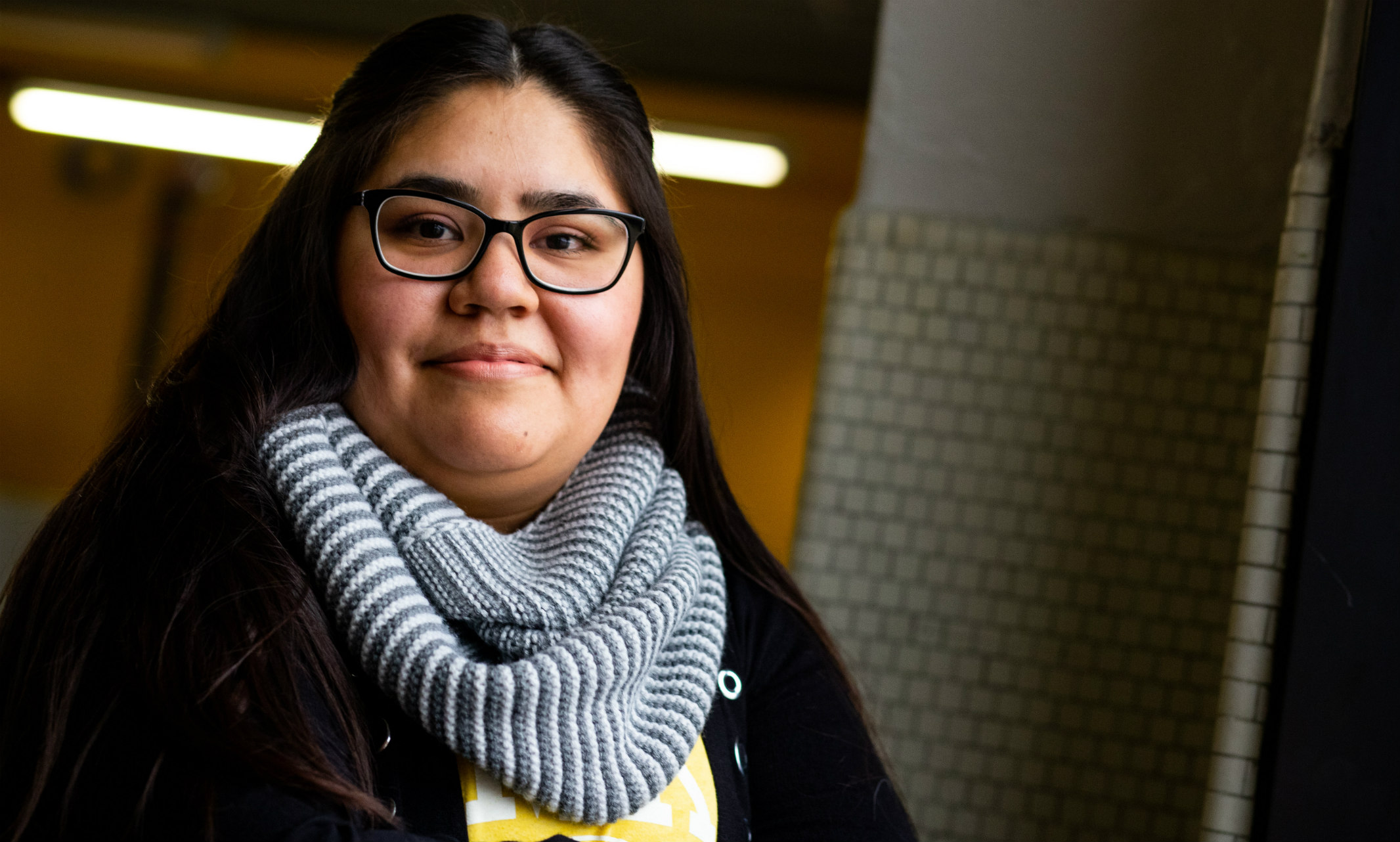
Astrid Vega’s career aspirations are inspired by her life experiences
Astrid Vega '22
Hometown: Kansas City, Kansas
High School: J.C. Harmon High School
Degree program: Education
Astrid Vega was five years old when she and her family moved from Mexico to the United States. As the product of two Spanish-speaking parents and a native Spanish speaker herself, starting school was a challenge due to the language barrier she had to overcome.
Thankfully, she had teachers who were willing to work with her as she learned to speak English. Fast forward several years later, the sophomore pre-elementary education student has the opportunity to pay it forward while working with English Language Learners (ELL) at Northeast Middle School as part of an Introduction to Language Acquisition and Diversity course (English 250) offered through the UMKC School of Education.
“I get the freedom to chart my own path and define my career.” — Astrid Vega
“I wanted to become a teacher because I want to work with kids, and I like to give back,” Vega said. “My teachers always pushed me to do my best and I want to impact kids and help them succeed.”
As a young mom, Vega’s college experience is nontraditional. She came to UMKC as a freshman interested in studying nursing but had to take time off to raise her son. After re-enrolling in school — this time at Metropolitan Community College — she changed her major to education.
“My parents didn’t go to college, but they always stressed the importance of going and finishing. And now I tell my younger sisters and my son ‘I made it, so you have to make it. No ifs, ands or buts.’”
Upon receiving her associate’s degree in education, Vega is back at UMKC working to complete her bachelor’s degree. Inspired by her own life experience and the School of Education's English 250 course, she’s considering becoming a teacher for English Language Learners.
“It’s amazing to see the students grow and, working a lot with Spanish-speaking kids, I like being an inspiration to help them see what they can become.”
Northeast Middle School is Kansas City Public School's district hub for English Language Learners. Children of various international backgrounds are bussed from all over the Kansas City metro to Northeast Middle for ELL classes. In class, children are grouped by comprehension level and UMKC students spend one day a week for 13 weeks working with them on reading and comprehension activities.
“It’s the small moments like seeing two children with different backgrounds and native languages speaking with one another in English that give me the most joy.” — Quinlinn O'Donnell, ELL teacher, Northeast Middle School
The Spanish-speaking students in Vega’s group were so excited that she speaks their language and can help them, although Vega says she tries to balance between Spanish and English so that they can practice communicating in both languages.
“I come up with different lesson plans and fun activities beyond what’s expected because I want them to learn,” Vega said. “I didn’t have Hispanic teachers growing up but my teachers were supportive and helped me learn more than I thought I could. The teachers at Northeast do an amazing job with the kids in the ELL class.”
The valuable lesson of diversity and inclusion reveals itself throughout the classroom as students are encouraged to help one another find creative ways to figure out how specific words in their respective languages translate to English.
“I wanted to become a teacher because I want to work with kids and I like to give back. My teachers always pushed me to do my best and I want to impact kids and help them succeed” — Astrid Vega
“It’s tough sometimes because these kids are trying to adjust to learning a new language on top of adjusting to a new home life as several of them are new Americans, but it’s the small moments like seeing two children with different backgrounds and native languages speaking with one another in English that give me the most joy,” said Quinlinn O’Donnell, Northeast Middle ELL teacher. “Or when a word they’ve been struggling with finally clicks and I’m like ‘Yes! You get it!’”
ELL students, some of which are refugees, are from countries all over the world ranging from Mexico to Myanmar to Somalia.
Vega said it's experiences like working with ELL students at Northeast that she enjoys most about her education at UMKC.
“I get the freedom to chart my own path and define my career,” Vega said. “I think teaching ELL will open up a lot of opportunities for me. I wish I can continue working with the students and seeing how far they go.”
Dec 09, 2019
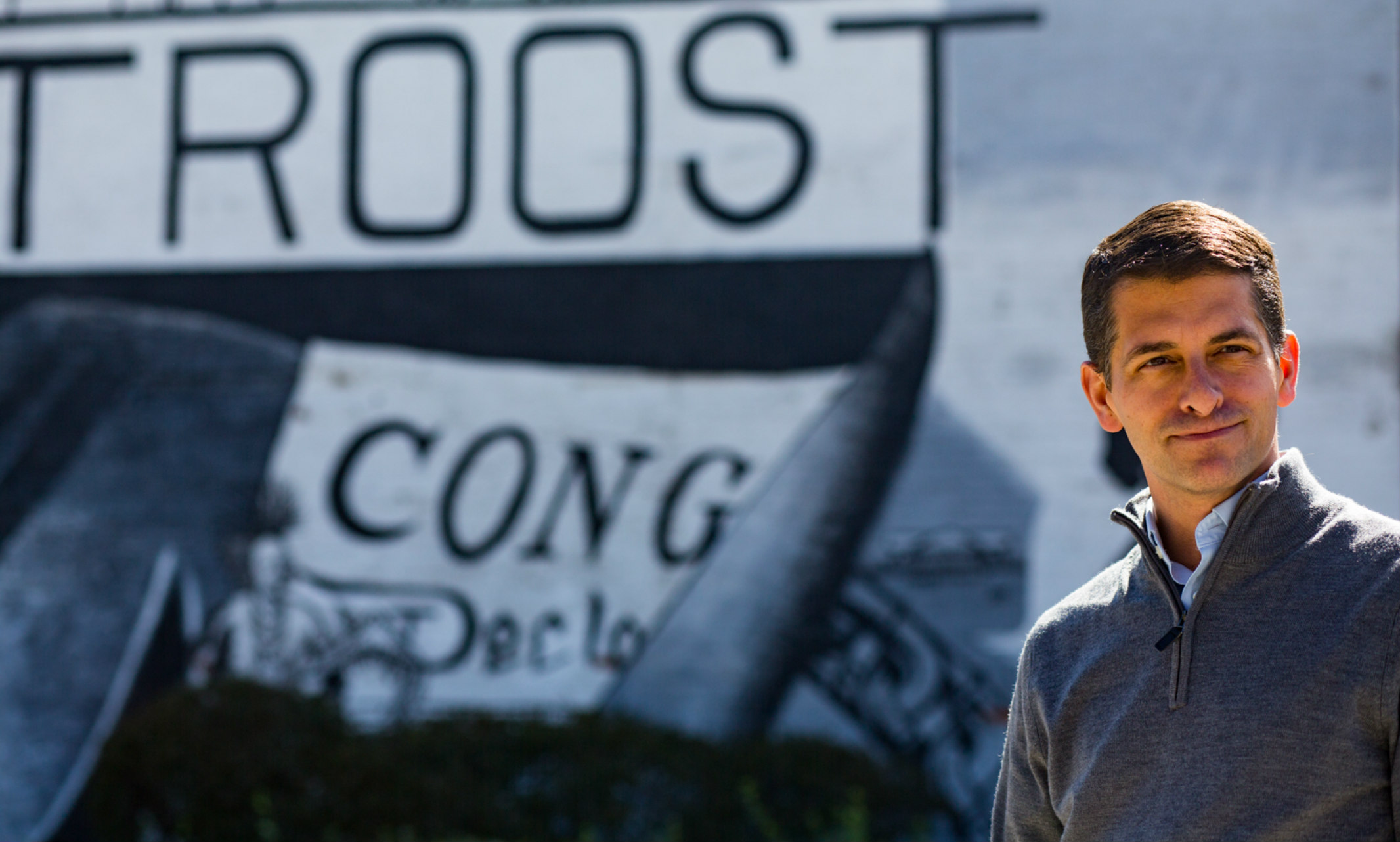
The 3 most important things you need to know about our new data sciences institute — plus its coordinator
Data scientist is the “sexiest job of the 21st century,” and now the University of Missouri-Kansas City is boosting that excitement and appeal for people in Greater Kansas City. Introducing the UMKC Institute for Data Education, Analytics and Science (IDEAS).
“Shortly after I arrived in Kansas City, I realized UMKC had enormous capabilities and opportunities in data science,” said Chancellor Mauli Agrawal, who created the institute. “There are exciting possibilities here for us, and for potential science and technology partner organizations throughout our community.”
The vision of the institute is positioning UMKC as the top option for data science training in the region, building on the university’s strengths in biomedical informatics, big data analytics, image analysis, digital humanities and geospatial analysis.
The coordinator of the new institute is Brent Never, associate professor at the Henry W. Bloch School of Management. There are no other specific faculty members attached to IDEAS. It is a space for all, with a focus on fostering connections to generate new ideas — pun intended — and move quickly on promising opportunities.
Never is a public-policy expert who uses city data to analyze abandoned housing, and was interviewed about his work by Lester Holt on NBC Nightly News.
“Scholars looking at real estate are often looking at how to finance new development, but I think about how we can empower communities to tackle distressed housing and vacant lots,” said Never, who last year with research partner and Bloch colleague, Jim DeLisle, won the national Alteryx Excellence Award.
Focus areas for UMKC IDEAS:
1. Workforce development
The institute will have vibrant educational opportunities for UMKC students and area professionals, positioning UMKC as the premiere source for data science in the region. This will mean evening and weekend opportunities, for both technicians as well as executive education. Pilot workshops have been held with more on the way. For UMKC students, it means they can earn data-science bonafides no matter their major.
“A philosophy major could apply her knowledge of ethics to the real concerns around privacy. A music composition student could use patterning in music to understanding trends in data,” Never said. “All students enrich our learning.”
2. Accelerating research
UMKC features strong research areas across the board. Examples include the Center for Health Insights at the School of Medicine, the Center for Big Learning at the School of Computing and Engineering and the Center for Economic Information at the College of Arts and Sciences.
“The goal is to foster more collaboration and get more faculty in the mix,” Never said. This will help spur more grant and contract development. “Data science is inherently complex and needs a full range of participation from all disciplines.”
3. Industry partnerships
IDEAS will be professional problem solvers for regional businesses for companies such as H & R Block, Cerner and engineering firms. “We’re partnering with industry and government to help provide new insight, something they might not be able to do in house.”
Grant Opportunity
An exciting opportunity is the Collaborative Data Science Grant Program, which helps UMKC faculty and research staff get their data science ideas off the ground. The funds, up to $25,000, can be used to conduct pilot projects, skill up in new techniques, or develop collaborative relationships with data scientists around the country. The deadline for submission is December 16, and submission materials can be found here.
For more information, contact Never at neverb@umkc.edu.
Dec 09, 2019

Enhanced Lifestyles for Metabolic Syndrome trial will test group vs. self-directed approaches
Many who set goals for the new year place top priority on becoming healthier. Now a national study can help take the guesswork and expense out of accomplishing a more active lifestyle. University of Missouri-Kansas City is one of five research sites in the U.S. for this study, which focuses on helping those at risk for metabolic syndrome.
UMKC is looking for participants.
Metabolic syndrome is a bundle of risk factors caused by common lifestyle choices that can lead to serious conditions such as diabetes, stroke, heart disease and cancer. Currently, one-third of Americans have metabolic syndrome, up from one-fourth a decade ago.
Over the next two years, with funding from the William G. McGowan Charitable Fund, the Enhanced Lifestyles for Metabolic Syndrome (ELM) Trial, developed at Rush University Medical Center in Chicago, aims to enroll 600 people who are at high-risk chronic disease and are interested in managing this risk by optimizing their lifestyle. In addition to UMKC at Truman Medical Centers in Kansas City, the other sites are Rush in Chicago; University of Colorado Denver; Geisinger Health System in Wilkes-Barre and Scranton, Pennsylvania; and Rochester Institute of Technology in New York.
The Kansas City study site is overseen by a prestigious UMKC School of Medicine team of principal investigators: endocrinologist Betty Drees, M.D., dean emeritus of the school and Jannette Berkley-Patton, Ph.D., director of the Health Equity Institute; and Matthew Lindquist, D.O.
“Metabolic syndrome is a serious condition because it is so common, and it can silently increase risk of heart disease and stroke without early warning symptoms,” Drees said. “Research into how to stop it early and keep it controlled is very important in preventing heart disease in individuals and in the population as a whole.”
Starting in January, participants will engage in the program for six months, and then will be followed for an additional 18 months, to allow for an assessment of how well they have been able to sustain the good habits they developed and the health benefits they received.
“We know that making these small lifestyle changes can have a big impact on people who have health issues that indicate they may have metabolic syndrome. Plus, everyone who participates will receive a free Fitbit. Other lifestyle-change programs can cost upwards of $500, but ELM will be free to our participants, which is awesome.” - Jannette Berkley-Patton
The ELM program provides tools, methods and support for healthier eating, increased physical activity and stress management. Guidelines include making vegetables half of every lunch and dinner, exercising for at least 30 minutes on most days, and learning to be less reactive to stressors.
The Rush team has been studying a group-based version of ELM for nearly a decade. The group approach, which has been shown to be effective, requires participants to attend meetings. While those can be helpful, they're time-consuming and may be inconvenient; from a public-health standpoint, groups are expensive and labor-intensive. So researchers want to know: Can we simplify this treatment? Can participants get the same or better health results under their own direction, with only minimal contact with the program?
“Metabolic syndrome is a serious condition because it is so common, and it can silently increase risk of heart disease and stroke without early warning symptoms. Research into how to stop it early and keep it controlled is very important in preventing heart disease in individuals and in the population as a whole.” - Betty Drees
For this study, a "self-directed" program will be compared to a group-based program, with the best lifestyle information available in clinical practice today provided in both..
Everyone in the self-directed arm will be assigned to a coordinator, and will receive a Fitbit activity tracker, access to the program's website and monthly tip sheets for six months.
In the group-based program, participants will get most of those things, too. But instead of the tip sheet, group members will meet for an hour and a half weekly for three months, biweekly for an additional three months, and monthly for 18 months after that. They will also have access to the ELM website. They will learn, for example, to distinguish when they are eating because they are hungry from when they turn to food because it is available or they are bored or sad.
Participants in both arms of the program will report for three follow-up visits so their progress can be assessed. They will receive lab results and physical measures after each visit.
“We are hoping we can learn how self-guided and group support programs can help people eat healthier and move more,” Berkley-Patton said. “We know that making these small lifestyle changes can have a big impact on people who have health issues that indicate they may have metabolic syndrome. Plus, everyone who participates will receive a free Fitbit. Other lifestyle-change programs can cost upwards of $500, but ELM will be free to our participants, which is awesome.”
How to participate
Participants in the study must be ages 18 years or older, not have diabetes, speak English, be willing to commit to a healthy lifestyle and have at least three of metabolic syndrome’s five risk factors:
Central fat (waist circumference of 40 inches or more for men, 35 inches or more for women)
High blood pressure
High blood sugar
Low HDL cholesterol
Elevated triglycerides
A condition of enrollment is a willingness to participate in either arm of the trial. Participants will not get to choose. To participate in the Kansas City area, email ELMtrial@tmcmed.org or call Alex Lyon at (816) 404-4418.
Dec 09, 2019
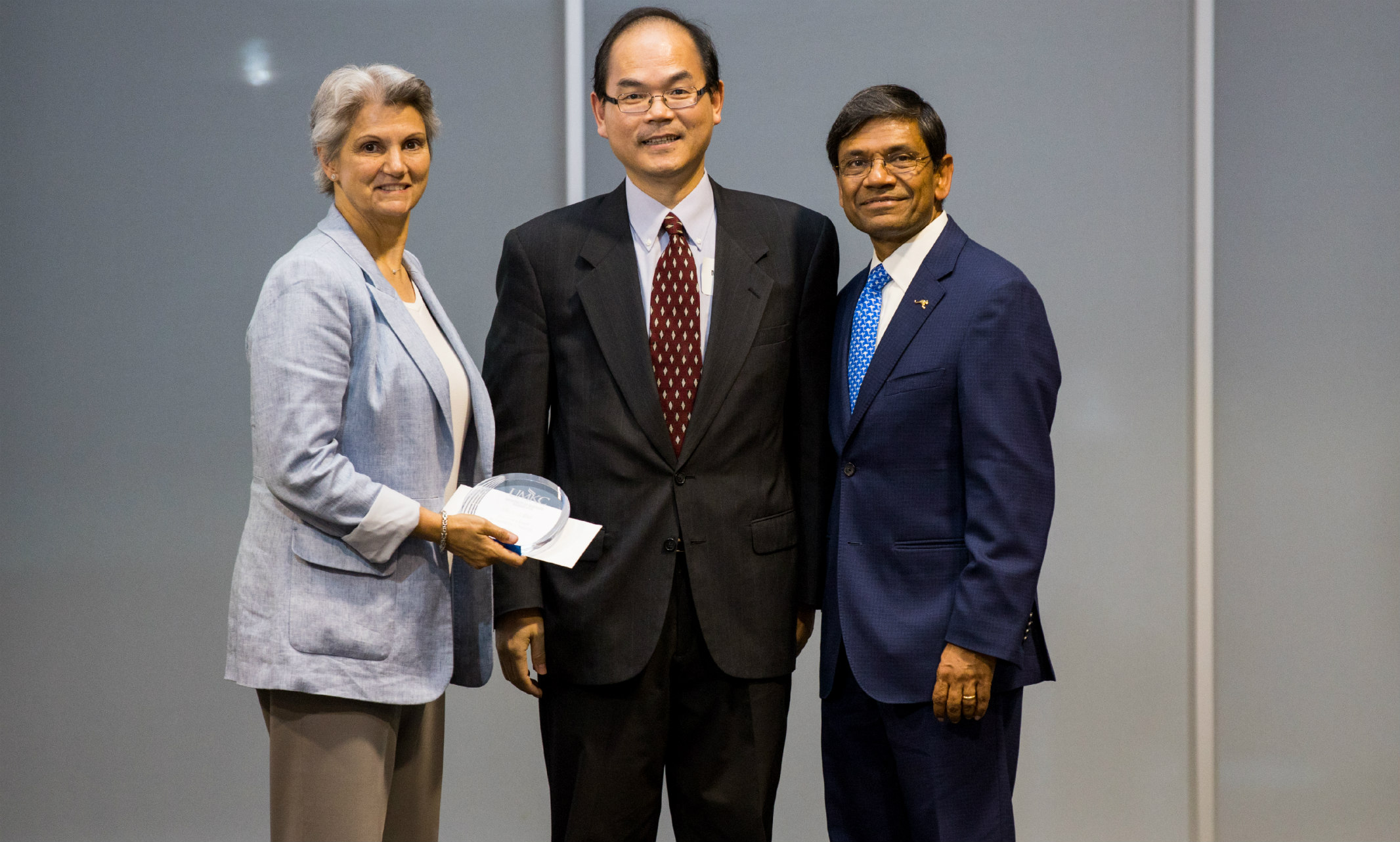
‘Applied Linguistics for Teachers of Culturally and Linguistically Diverse Learners’ selected as one of IGI Global’s Core Reference Titles for 2019
IGI Global, a leading international academic publisher, called “Applied Linguistics for Teachers of Culturally and Linguistically Diverse Learners” an essential scholarly publication that seeks to contribute to TESOL (teaching English to students of other languages) and language teacher education programs.
The book, co-written by Michael Wei, associate professor and TESOL program director in the Division of Teacher Education and Curriculum Studies at the UMKC School of Education, covers every aspect of applied linguistics for ESOL teachers: morphology, syntax, semantics, phonetics and sociolinguistics — to name a few.
“Strong language instruction is especially crucial given the fact that ELLs represent the fastest-growing segment of the student population in U.S. schools (ELLs make up about 10% of the total student population) and fall behind their native English-speaking peers and struggle academically in the K-12 setting,” Wei said.
Wei, the 2019 recipient of the UMKC Chancellor’s Award for Excellence in Teaching, has more than 25 years of experience working with English language learners. He’s taught TESOL programs in elementary and secondary schools in the U.S., middle schools in China, and at the university level in China, Thailand, and the U.S. He joined the UMKC faculty in 2006, and teaches graduate courses in applied linguistics, English grammar, second language acquisition and research methods.
“’Applied Linguistics for Teachers of Culturally and Linguistically Diverse Learners’ contains impactful and highly cited content that prompts thought-provoking discourse and inspires further discoveries, making it a pinnacle publication from our full collection of 5,300+ reference books,” according to IGI Global
This is the seventh book Wei has published in addition to one book translation, 28 chapters and articles and a translated film among other published works within his research areas — second-language acquisition, phonetics, reading/writing English as a second language and learning environments.
This publication is geared toward teacher candidates in TESOL programs across the globe and provides knowledge about linguistics for ESOL teachers who are going to teach about 5 million ESOL students in the nation.
Learn more about Wei's research and teaching
Dec 09, 2019

Ph.D. student Frances Bozsik's research on what constitutes the ideal female figure made international headlines
Frances Bozsik, a UMKC doctoral candidate in clinical psychology, has made international headlines for her research on body image. Now she's inviting women to participate in research for her dissertation.
She's conducting an online study examining body image in adult women, and is recruiting women between the ages of 45 and 60. People should feel free to take and/or pass along to others in their network. Participation is entirely online in a survey format. If interested, participants may enter their email address at the end of the survey to be sent a $10 VISA e-gift card. Email addresses will not be associated with responses.
Bozsik's research on what constitutes the ideal female figure earned media coverage around the globe.
“It’s really exciting,” said Bozsik, who is working to complete a clinical health psychology Ph.D. in 2020. “The study reflects the trend people are noticing that fitness and nutrition – vs. thinness – is the ideal.”
Models used in social media postings, or more than a decade’s worth of Miss USA beauty pageant winners, tell us that thin female bodies are still rated as attractive. However, U.S. women’s perceptions of what constitutes the perfect female figure have evolved in recent years to more of a muscular and toned ideal. This is according to Bozsik, who led a study published in 2018 in the journal Sex Roles.
Dec 08, 2019
Nancy Levit, a law professor at UMKC, tells Forbes that responding to the gender pay gap should be an issue of institutional, rather than individua...
The gender pay gap is alive and well. Women’s median annual earnings are almost $10,000 less per year than men’s. And the gender gap between the wages of new college graduates has grown since 2000. Law Professor Nancy Levit says the situation requires broader, systemic solutions. Read the story.
Dec 08, 2019
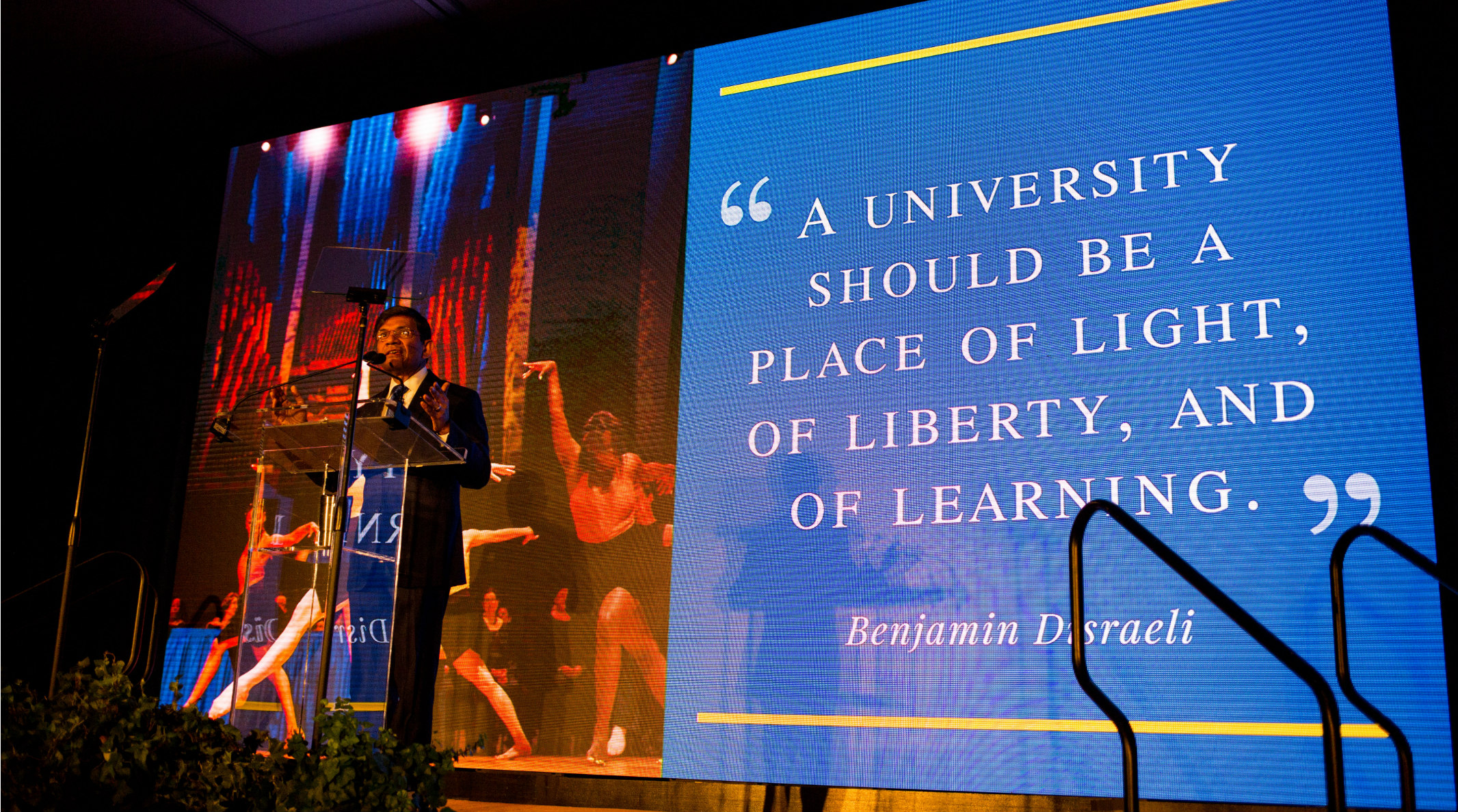
Growth and accolades abound
The year 2019 was one of monumental growth as UMKC and its community partners expanded opportunities for students. We’re also proud of the many significant accomplishments of our Roos. These are just a few of our top stories for this year.
Agrawal celebrates investiture with new initiatives
Mauli Agrawal, Ph.D., announced his dedication to establishing a Community of Excellence through five signature initiatives: Roo Strong, a student success initiative; the UMKC Institute for Data Education, Analytics and Science (IDEAS); TalentLink, a skill development initiative; Health Equity Institute, a new initiative to ensure equal opportunity for improved health; and Building Pride, a mentorship program.
Significant gifts support capital improvements and student success
The Marion and Henry Bloch Family Foundation committed $21 million to support programming and capital improvements for the Henry W. Bloch School of Management and RooStrong, a new student success initiative.
The Sunderland Foundation committed $15 million for capital improvements to the Bloch School of Management, School of Dentistry, University Libraries, the School of Law and the School of Computing and Engineering.
Bloch Family promotes student success by generating $20 million in scholarship funding
About 800 students will benefit from scholarship programs established by the Marion and Henry Bloch Family Foundation, the H & R Block Foundation and matching funds from the University of Missouri system.
University bids farewell to champion and supporter Henry Bloch
Entrepreneur, philanthropist and tireless UMKC supporter Henry Bloch died in April. His legacy will live on through the people he loved and the organizations to which he was committed.
Former First Lady Laura Bush visits campus
First Lady Laura Bush and First Daughter Barbara Pierce Bush were in conversation about their experiences in the White House and their family connection at the Starr Women’s Hall of Fame luncheon, which honors the legacy of women leaders in Kansas City.
UMKC composer named to American Academy of Arts and Letters
Chen Yi, Lorena Searcy Cravens/Millsap/Missouri Distinguished Professor of Composition, was inducted in the American Academy of Arts and Letters, an honor society of the country’s leading architects, artists, composers and writers.
School of Dentistry unveils state-of-the-art training lab
A multimillion-dollar makeover provides students with fully-equipped, ergonomically-correct work stations that is among the newest and largest in the U.S.
UMKC researcher helps discover new strain of HIV
Carole McArthur, M.D. ‘91, Ph.D., of the School of Dentistry, made news around the globe as part of a team of scientists who discovered a new subtype of HIV, which can be traced back to the Democratic Republic of Congo.
UMKC business students represent the U.S. in global competition
Three Bloch School of Management students represented the U.S. in the Unilever Future Leaders’ League, a global business-case competition in London. Students from 26 countries participated.
Elevating Athletics
Kansas City Athletics had a banner year under the leadership of Athletics Director Brandon Martin, Ph.D. The Roos returned to the Summit League, launched a new fighting Roo logo and a bold basketball court redesign.
Dental student delivers patient’s baby at clinic
A fourth-year student in the School of Dentistry started her first day of her new externship eager to treat as many patients as she could. Aliah Haghighat was prepping the tooth of her second patient when the woman’s water broke.
Dec 06, 2019
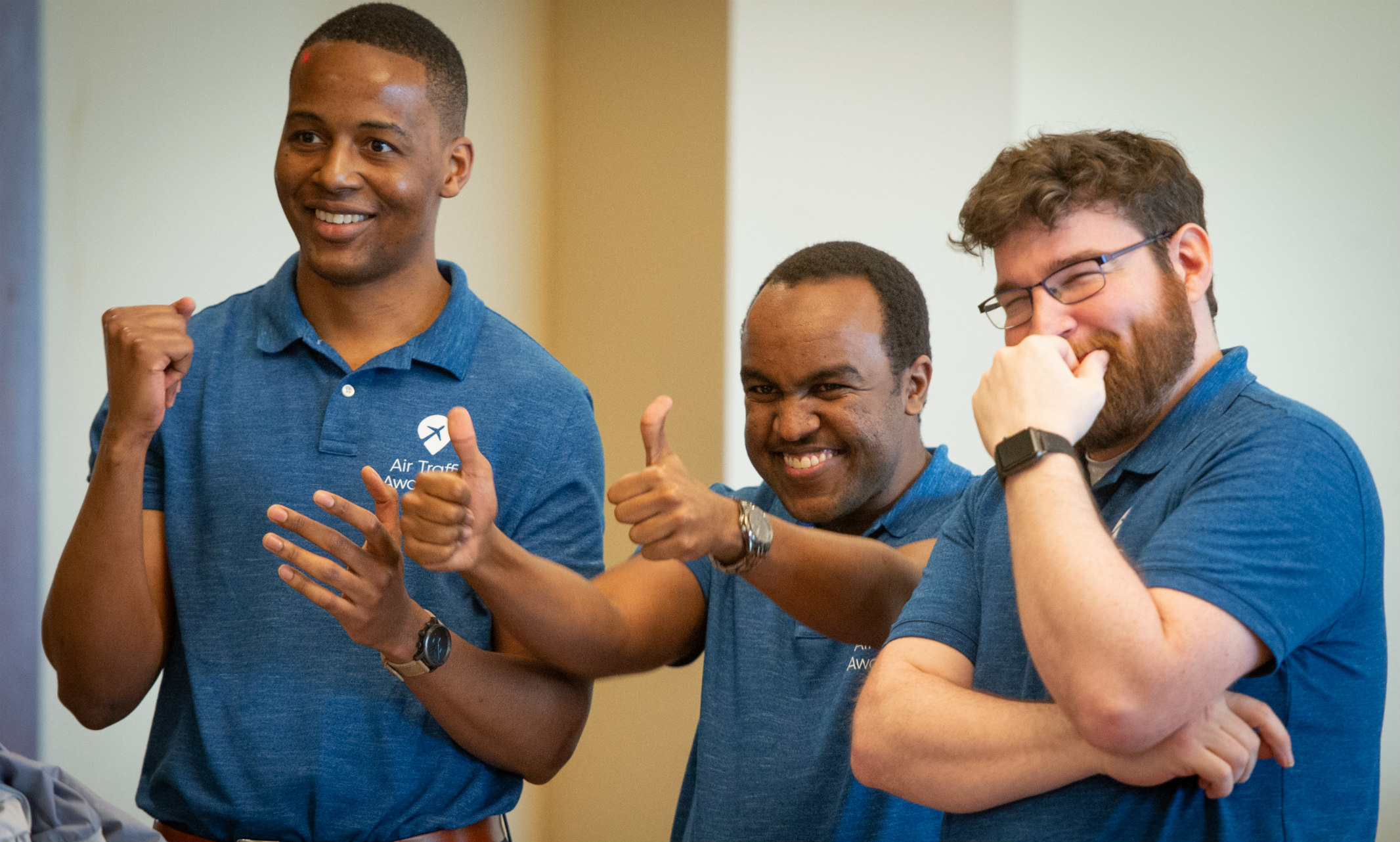
UMKC students pitch ventures in Entrepreneurship Quest Student Accelerator
Twelve student entrepreneur teams from UMKC will move on to the next round of the UM System pitch competition.
Last week, 20 teams pitched their ventures at the Henry W. Bloch School of Management Regnier Institute for Entrepreneurship and Innovation. All of the student entrepreneurs were solving problems through their business ventures that ranged from tech products to beauty products to apps and platforms to connect busy parents. Teams pitched in 10-minute time slots with 5 minutes for the pitch and 4 minutes for questions and answers. The next round of the UM System EQ Pitch Competition is in March 2020.
Here are the 12 ventures:
Pegasus Project
Thomas Murphy, business administration, undergraduate; Kyla McAuliffe, business administration, undergraduate; Abdulmajeed Baba Ahmed, mechanical engineering, undergraduate; Ami Khalsa, computer science, undergraduate
Project DescriptionPegasus upfits traditional bicycles to run with battery-electric-power assistance. The company is intent on creating an alternative and affordable transportation option for all residents. The target audience identifies as low-income, which drives Pegasus to provide a more effective and reliable mode of transportation for individuals to reach jobs, school and communities. An included bus pass will help manage instances of inclement weather. The team said market-rate customers will experience value from Pegasus’ cost leadership strategy, because an upfit will cost half the price of an equivalent quality new e-bike.
Vortex Cooling Systems
Jordan Berg, mechanical engineering, undergraduate
Project DescriptionAccording to Berg, there is an unmet demand for a business to create and sell direct water-cooled central processing units and graphics processing units. He said Vortex Cooling Systems would provide in-house integration of a cooling system and processor to create a much more powerful system than what is currently on the market. By professionally bonding a cooling system to the CPU, the thermal resistances present in currently-available cooling systems would be bypassed and the new cooling system would perform far better. The customer could then purchase the CPU and cooling system combo directly from the company instead of purchasing each component separately. Other business capabilities would include retrofitting customers current CPUs with a cooling system, or custom chained cooling system based on customers’ requirements. The goal of the company would be to keep up with the customizable nature of the gaming community.
Koil Hair Dryer
Konnie Wells, mechanical engineering, undergraduate; Zion Guerrier, mechanical engineering, undergraduate
Project DescriptionThe product is a hair dryer designed to help individuals with curly and coily hair textures to dry and/or straighten their hair. The student entrepreneurs said customers will no longer have to buy multiple devices to straighten or dry their hair, because attachments will be made specifically for curly and/or coily hair types. The hair dryer will also have an ergonomic handle that has better sensors to offer great heat control and power control. In addition, Wells and Guerrier said the attachments will be strong, because coily hair can place a large amount of resistance on them compared to the resistance from straighter hair textures. The hair dryers will be available online or can be bought in stores, giving customers a device tailored specifically for them.
Good Bitter Best
Jennifer Agnew, business administration, graduate
Project DescriptionBecause many of bars and restaurants in the Kansas City area use generic bitters, or make them in-house, Agnew plans to offer local bitters that are made from locally-sourced ingredients. Agnew said giving bars and restaurants access to a local company will allow them time to mix more creative drinks without the mess, hassle and expense of making their own. Providing local bitters would also allow for drink menus to change with the seasons or different events rather than sticking with one flavor all year. Good Bitter Best has already created a line of bitters, giving Agnew the bittering agents and experience with what works best to get the most flavor out of the ingredients.
Recipe Tree
Nathaniel Worcester, computer science, undergraduate
Project DescriptionWorcester believes the industrial food service and restaurant industry needs an across-platform recipe sharing application that supports different file-types. As the market stands, recipe sharing applications do not support file transfer in their native file format (docs, .txt, pdf, video, etc). Worcester said this requires the chef to manually update and replace old recipes by filling in fields in a recipe sharing application. Where the tech world has moved to “drag and drop,” functions, he said the food industry still uses the equivalent of static html applications that do not allow multimedia or anything outside a filled out form. File-sharing applications provided by Apple or Google Drive are currently being used in many instances in the food-service industry, but these programs do not support role-based access for files to allow the employee to edit, change or share a recipe where they should only be able to view it. Because of the hassle, Worcester said some companies are still using paper recipe books.
Compost Collective KC
Kyle McAllister, business administration, graduate
Project DescriptionCompost Collective KC solves two fundamental problems – the first is a global issue. McAllister said food waste is a major threat to the environment and is produced in the United States at an alarming rate. Approximately 30% to 40% of all waste going to landfills in the U.S. is food. He said that equates to approximately 33 billion pounds of food in landfills per year. That volume would fill the entire Rose Bowl in Pasadena, California, each day for an entire year. McAllister said this is a problem because food waste breaks down in a landfill without oxygen and, as a result, the process emits methane gas. Depending on the study, McAllister said methane gas has 25 to 84 times the climate-change impact than carbon dioxide. Given this issue, people are looking for more sustainable alternatives. McAllister cited a recent Yale study that found that 70% of Americans think environmental protection is more important than economic growth. McAllister believes Compost Collective KC can help solve the second problem – give people a simple way to have a positive environmental impact by composting.
Vest Heroes
Fahad Qureshi, medicine, undergraduate/graduate
Project DescriptionWhen Qureshi started shadowing physicians, he saw an unexpected problem when any surgical operation involving an X-ray or radioactive imaging technology requires the health care professional wear a heavy lead vest and skirt – the equipment was very heavy and often weighed between 30 and 69 pounds. Because failure to wear protective gear results in carcinogenic radioactive exposure, wearing of protective equipment is required by law. When questioned, Qureshi said surgeons complained of back pain and hindered operational mobility due to the excess weight. In addition, Qureshi said the pain worsened for physicians as they worked long surgeries and as they aged. To solve this problem, Qureshi realized he needed to add an engineering element to his medical background. He started an apprenticeship with a local engineer and learned how to work with his hands. Qureshi said his eyes were opened to the problem-solving nature of the field. He soon started constructing his own prototypes in the fashion of the pulleys and levers. The prototype consisted of a lead vest/skirt with a tether. This tether was hooked to a cord that ran to a small hook on a ceiling. Finally, the cord was connected to a weight that offset the weight of the vest. In this way, a simple pulley was created. He contacted an interventional nephrology practice that uses radioactive imaging called A.I.N. in Chicago who allowed him to build a model in the operating room with special sterile materials. Qureshi used a 50 pound weight to make a 60 pound vest and skirt feel like just 10 pounds. The physicians at the practice were astounded and asked for more, citing their immense need.
Unity Gain
Travis Fields, business administration, undergraduate
Project DescriptionFields is creating a 21st century solution to the fragmented local music scenes left in the wake of the 20th century recording industry. Unity Gain is a brand, anchored by a live music venue, artist’s hostel and a 24-hour diner built on local music communities offering local and touring musicians the resources, networking and support necessary to make their musical careers sustainable. By offering hostel-style sleeping quarters for touring musicians, as well as membership based production studios, digital marketing resources, mentorship and more to musicians, Fields said Unity Gain will create a community and value that will attract top talent, and in turn, the live music fans and supporters in those communities. Fields also expects to build relationships with the influencers of tomorrow.
Pythagorus
Adeesh Parvathaneni, medicine, undergraduate/graduate
Project DescriptionPythagorus provides an online service that would allow young people and athletes to have physical therapy whenever and wherever they would like it. By providing an online physical therapy experience using a webcam, the application would use copyrighted code to detect angles and thus, the exercise that the young person made. Therapists can then let patients know whether or not they did the exercise right. The program would also count the amount of reps completed, allowing a physical therapist to use the software to prescribe a workout to a young athlete through a video demo. The patient could then complete the exercises under the guidance of the software. Parvathaneni said the application differentiates itself by not only its marketing strategy, but by being the sole company that allows for physical therapy online. In addition, he said the solution is proprietary and utilizes Intel OpenVino software, which leverages deep learning technology.
DivviUp
Brad Starnes, information technology, undergraduate
Project DescriptionDivviUp would solve the problem of sharing or splitting automatic payments between peers. Currently, Starnes said consumers have to put one card on file if they plan use auto pay, and use other methods to get funds to their peers or make multiple payments to their merchant for a simple bill pay. DivviUp would allow consumers to put a virtual card on file with their merchant for monthly recurring transactions to then be separated by an algorithm for each person’s portion of their transaction via an ACH withdrawal. The DivviUp team integrated with a third-party banking service, Plaid, which allowed them to conduct real-time balance checks on consumers’ individual accounts prior to allowing the transaction to go through on a monthly basis. They utilize user input of each person’s percentage of the transaction to charge the dollar amount to each user’s checking account each month. Plaid allows them to check each user’s account to see if they have their specified amount, and if not, they send a notification rejecting the transaction. Starnes said this program gives the opportunity to transfer funds and re-attempt the transaction when funds are available. DivviUp will utilize data entered by the consumers on a mobile app, specifying what utility company in use, to market to those companies for an online API integration to reduce cost.
EEG Controlled IoT Devices
Syed Jawad Shah, computer science, graduate (PhD)
Project DescriptionShah has identified a problem for people who are physically disabled and don't have an effective communication medium. EEG Controlled IoT Devices is a brain-computer interface that directs IoT devices to take certain actions. It is an assistive and non-invasive technology that enables physically challenged individuals to complete their daily tasks with some degree of independence. They can also communicate with others in a more effective manner. Examples would be turning the light on or off or calling for help. The device also enables health care providers to provide better services to patients. The interface uses deep learning technology to learn distinct patterns in EEG signals and associates them to trigger certain actions on IoT devices. For example, a patient with no ability to move or talk can turn on a light in a dark room by thinking of an illuminated light bulb. In this way, Shah hopes his product will increase users’ confidence and provide positive a experience.
Genalytics
Greyson Twist, bioinformatics and computer science, graduate (PhD)
Project DescriptionThe core of Genalytics is to prepopulate data from experts in line with current FDA approved and supported/drug gene interactions in the required/proprietary format. Access is shared across all possible target customers but the interface and interaction may differ. In direct-to-consumer, uploaded relevant demographic information as well as genomic information, customers can present a potential medication, via barcode scanner or the drug NDC code. The system will screen the active ingredients and the genomic data, and return a red light or green light based on the results. A green light means it is safe, based on known information to take the medication. A red light means that some concerns exists. With the red/negative indication, the team would like to provide alternative medication options, such as a product minus the offending active ingredient, or suggestions to consult a pharmacist or doctor for dose adjustment guidance.
Read about the last pitch competition
Dec 06, 2019
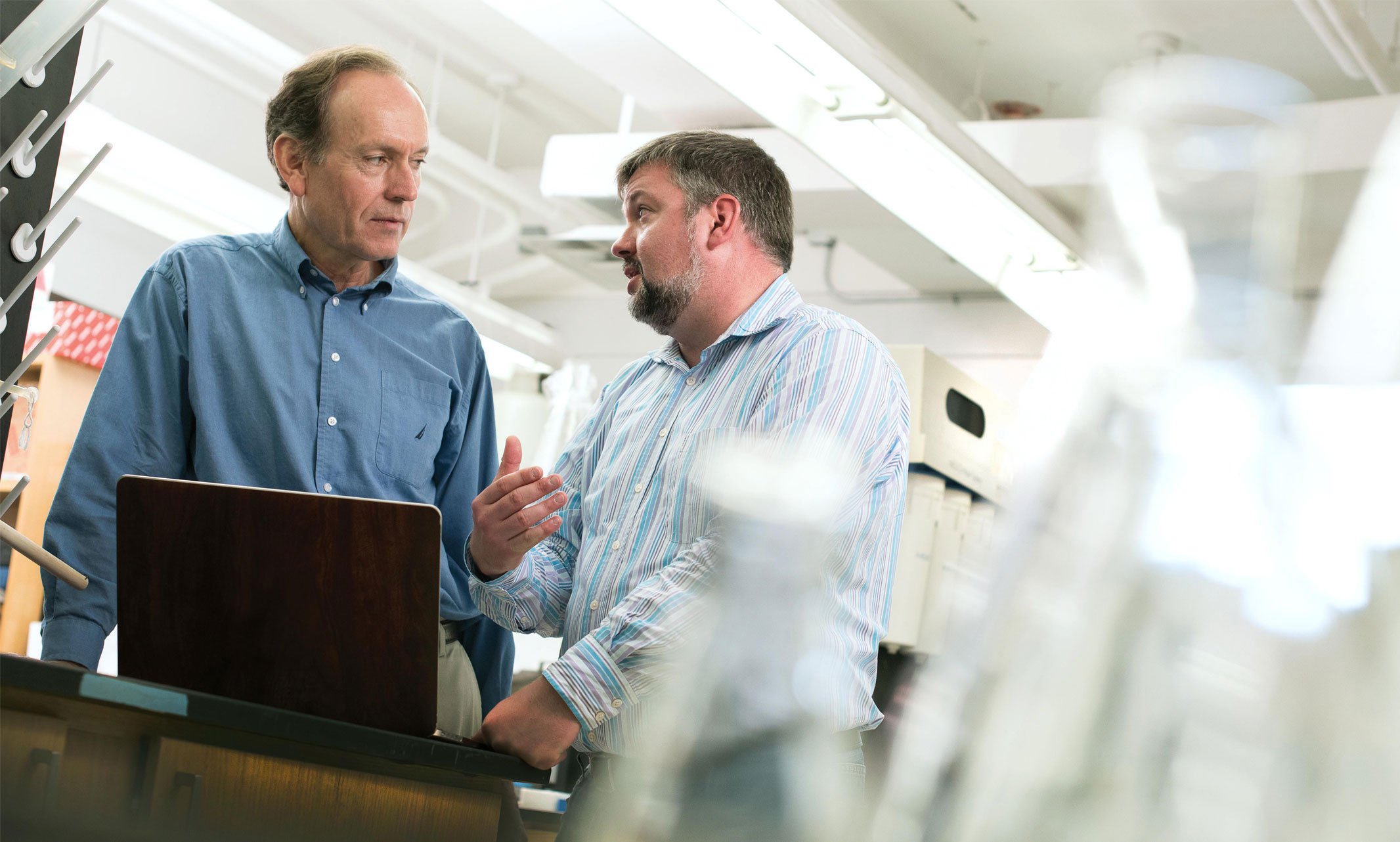
Whiteboard to Boardroom helps KC startups turn ideas into commercialization
The Kansas City Business Journal details how the UMKC Innovation Center's Whiteboard to Boardroom program helps local healthcare startups transition from from lab success to commercialization. Featured was UMKC Professor Gerald Wyckoff, at right, who created a computerized system that predicts problematic drug interactions.
Dec 06, 2019
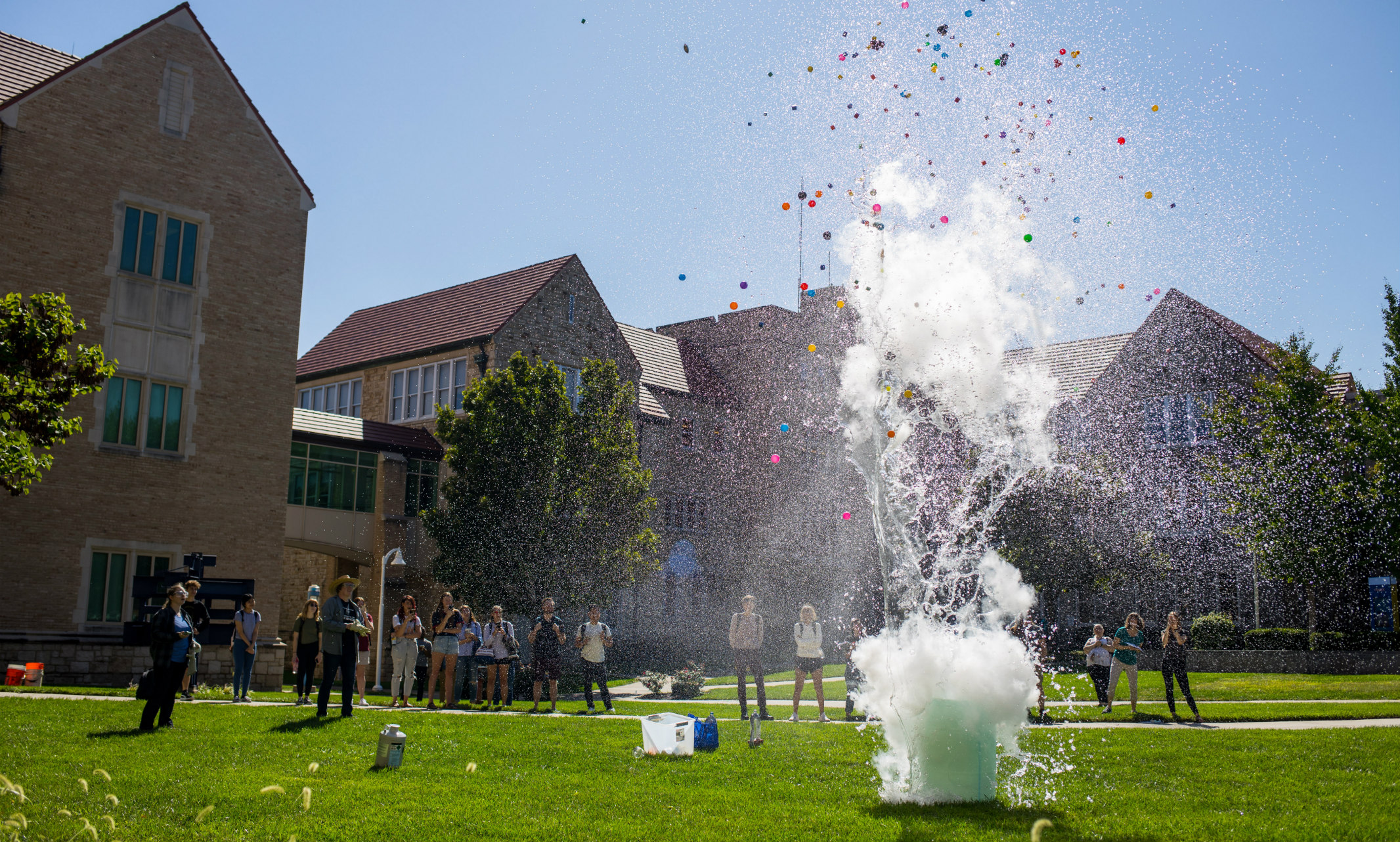
Images capture memorable moments of campus life
When we look back over the year, words often fail to describe exactly what we experienced or what it felt like to be present during certain moments. That’s where photos come in. Our university photographers Brandon Parigo and John Carmody excel at capturing what life here at UMKC is really like. We caught up with them to look at their favorite photos from 2019, and discuss what made each image memorable.
Trashcano (image above)
“Any time you can photograph an explosion, it’s a good day,” Brandon says. No further explanation needed.
Petting Zoo
The featured animal in the event before spring finals was, of course, a baby kangaroo, John says.
Soccer
The women’s soccer team is conducting a focused moment of quiet before a game, a meaningful part of their pre-game routine. Brandon also says that the “Roo Up” that follows is one of the most genuine expressions of school spirit that he has ever seen.
Therapy horses
Two therapy horses joined a nursing class, thanks to assistant professor Sharon White-Lewis who raises miniature horses and teaches about their benefits. John wonders “who knew there was such a thing?” Well “Parks and Recreation” fans sure do, hey Li’l Sebastian!
Basketball
Stillness and concentration are part of what makes this photograph special. Brandon notes that he likes the unique formation of her hand and the way she lingered in that exact position until she made sure the ball went through the net. Even the referee at the edge of the frame is focused on the ball, giving off the feeling that everyone in the room was holding their breath.
Marcus and Daphne at Miller Nichols Library
For Brandon, this photo shows how fun students can be, and how willing they are to go the extra mile to support campus. The expressions seen in the photo are also genuine reactions to the goofiness of Brandon’s directions, which makes him feel like he is reflected in this shot as well.
Snowball fight
Brandon appreciates the spontaneity of the photoshoot, capturing the impromptu snowball fight and all the action and movement in this particular shot.
Cross Country
John remembers how the brutal weather conditions including a two-hour lightning delay meant lots of mud, but the Roos still made a good showing.
Avanzando event
The dancing and celebrating on the patio of the Student Union reflected a unique side of UMKC that Brandon says he would love to see more of on campus.
Fall dance concert
Brandon loves how the shot was taken right as the lights were fading out, making the photo appear to be a blending of black and white and color. He also feels that this image complements the emotion and symbolism conveyed in this performance.
Dec 05, 2019
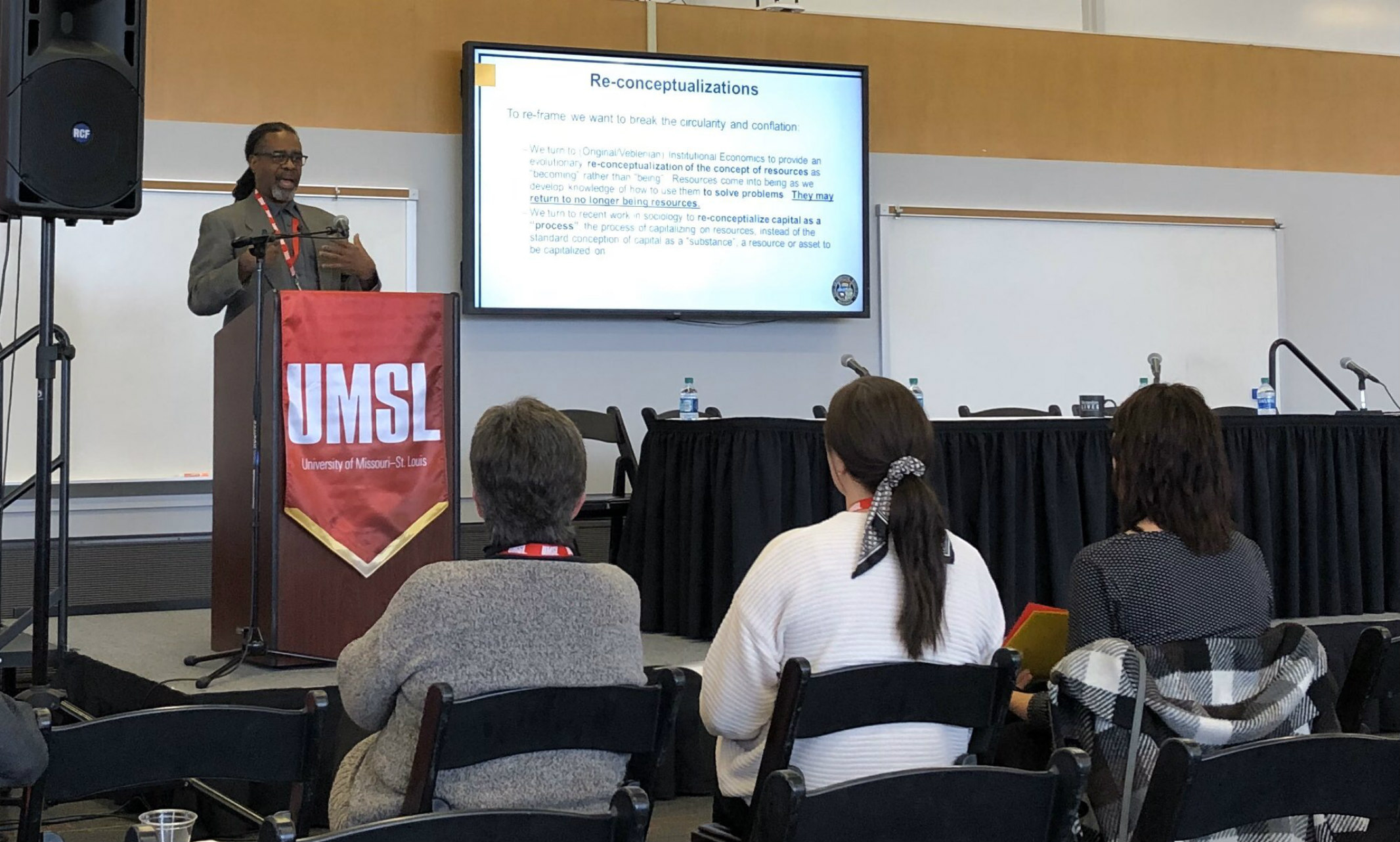
Four College of Arts and Sciences professors share sustainability ideas
Four University of Missouri-Kansas City professors from the College of Arts and Sciences presented their research at the UM System Collaborative Summit, “Converging Disciplines to Support Sustainable Development Goals (SDGs),” Nov. 20 at the University of Missouri-St. Louis.
In 2015, member states of the United Nations adopted “The 2030 Agenda for Sustainable Development” to support global action toward peace and prosperity for all nations. The agenda includes 17 Sustainable Development Goals (SDGs) to guide the global community in critical action to sustain the health and wellness of our planet and its inhabitants. The UM System Research Summit focused on several of these goals, including: no poverty; zero hunger; quality education; gender equality; affordable and clean energy; decent work and economic growth; reduced inequity; and peace, justice and strong institutions.
Presentation topics and brief descriptions for the four UMKC professors at the UM System Collaborative Summit are listed below. View session one and session two from the summit on YouTube.
Caroline Davies, associate professor, Department of Earth and Environmental Studies, on “Teaching the Sustainability Development Goals through Undergraduate Research and Community Engagement.”
The presentation described community engagement via a large format course around sustainability and the impacts of hands-on projects for students and community partners. To date there have been nearly 600 sustainability projects across the Kansas City metropolitan area.
Linwood Tauheed, associate professor and IPh.D. director of Economics, on “The ecological and community economic development: A methodological reconciliation.”
There is a significant conflation in the definitions of three concepts – resources, assets and capital – both in economic theory and in common usage. This conflation creates a cognitive frame in how the use of resources is discussed, which is biased in favor of increased resource usage, and leads to justifications for risk-taking behavior associated with increased resource usage and its effect on the global climate. A reconceptualization in the definitions of resources, assets and capital can help to normalize the framing around resource usage, and help bring to the forefront the liabilities of increased resource usage. This is a reconceptualization needed within ecological economics, if it’s to generate public support for its goal of creating an environmentally sustainable economy that simultaneously improves human well-being.
Jacob Marszalek, associate professor of Psychology, on “Promoting the development and assessment of social justice advocacy.”
A cornerstone for building institutions that promote peaceful and inclusive societies for sustainable development is to help their individual members (e.g., those in the helping professions) develop social justice advocacy (SJA), a pillar of Development Education. An important component of any type of education is assessment, and the Social Issues Advocacy Scale (SIAS; Nilsson, Marszalek, Linnemeyer, Bahner, & Misialek, 2011) was developed to measure the competency of SJA in students in the helping professions, and has been translated and used both nationally and internationally. The SIAS has been used to develop mastery profiles of SJA in students in clinical and counseling psychology, nursing and education, which may be used to assess growth in SJA attributes over the course of an academic program. The scale has been further developed into the SIAS-2 to account for a broader array of SJA dimensions, and ongoing research is refining a short form version for greater usability.
Sunghyop Kim, professor of Architecture, Urban Planning and Design, on “Equity in transportation mobility and safety: Issues in an aging Society.”
Aging population poses substantive equity issues. Safe mobility is critical to ensure a good quality of life regardless of one’s age. However, older adults often must deal with transportation disadvantages. Older adults who cannot drive face significant mobility challenges. A significant increase in bankruptcy rate and a growing financial insecurity among older adults pose added concerns. Gender and racial gaps in mobility exist among older adults. Older women, older minority women in particular, are more vulnerable than older men in meeting their mobility needs. Older adults aged 65+ are more likely than any other age groups to be fatally injured in pedestrian crashes. A number of recommendations have been made to address older adults’ transportation issues. However, specific strategies to promote safe and affordable mobility of older adults are still underexplored.
Dec 05, 2019
In a series of broadcasts, PBS NewsHour describes how Prof. Sean O'Brien and others at the UMKC School of Law fought for years to exonerate wrongly...
UMKC Law Prof. Sean O’Brien and client Ricky Kidd describe their two-decade-long struggle to exonerate Kidd from a false murder charge, and the overburdened public defender system that failed him.
See the broadcast.
Hear the podcast.
Dec 05, 2019
Joah Williams, a psychology professor at UMKC, tells KCUR about his new program.
“The goal of the project is to try to provide timely and responsive early intervention for survivors of nonfatal shootings,” says Joah Williams, a psychology professor at UMKC who runs RISE, Responsive Individualized Support & Early Intervention. Read the story.
Dec 05, 2019
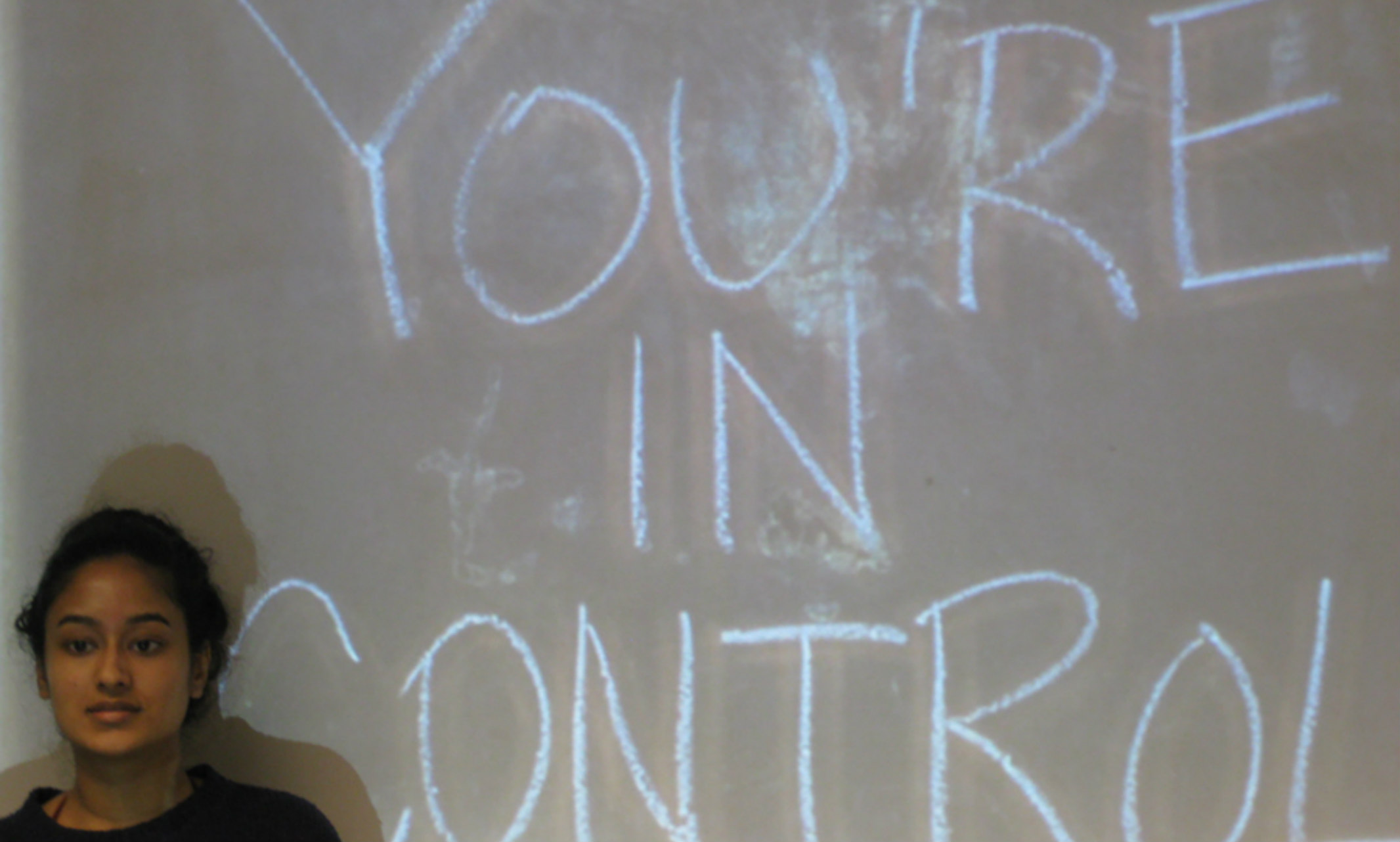
Dramatic collaboration shows the dangers of sexually transmitted diseases and HIV
Gus Frank begins to share his story with a group of Kansas City teenagers. For about 20 minutes, he describes how this local high school basketball player discovered that he is HIV-positive and must now live with consequences.
But the story is not really his own. It is, however, the unnerving and true story of a Kansas City teen whose life has been dramatically changed forever.
Frank is actually a fourth-year medical student at the UMKC School of Medicine acting in the production, “The Dramatic STD/HIV Project.” The partnership brings together health professions students from UMKC, the University of Kansas and Coterie Theatre actors to provide Kansas City teens with the facts about sexually transmitted diseases and HIV/AIDS.
“Some of the highest STD rates are among our youth and young adults ages 15 to 24. Education, knowledge and prevention are an important step in changing this risk to our youth.” —Stefanie Ellison, M.D.
In the roughly hour-long program — a 15- to 20-minute scripted presentation followed by an often-intense question-and-answer period — a professional actor from the Coterie pairs with a medical, pharmacy or nursing student to discuss the dangers of the diseases with audiences from eighth grade through high school.
“We’re there to inform the youth of Kansas City,” said Frank, now in his second year with the project. “We’re not doing this to tell them what they should do, but to inform them of the facts. We want them to be able to make their own informed decisions when the time comes.”
Evolution and impact
Joette Pelster is executive director of the Coterie Theatre and a co-founder of the project. She started the program with the theatre’s artistic director Jeff Church, an adjunct theater instructor at UMKC, and Christine Moranetz, then a faculty member at the University of Kansas Medical Center. That was 26 years ago when the AIDS epidemic was at its height, becoming the one-time leading cause of death among Americans ages of 25 and 44.
Wanting to create an educational program with credibility, Pelster reached out to the local medical community for help. She first enlisted aid from the University of Kansas School of Nursing. The UMKC School of Medicine joined the program in 2004, followed by the UMKC School of Pharmacy in 2008 and the UMKC School of Nursing and Health Studies in 2015.
“We wanted to do something that would have an impact,” Pelster said. “A lecture wasn’t going to do it. This was a perfect partnership because their weakness was our strength. We brought the acting, they brought the medical content and credibility. That’s why it’s lasted so long.”
“We’re there to inform the youth of Kansas City. We want them to be able to make their own informed decisions when the time comes.” —Gus Frank, medical student
UMKC faculty members Stefanie Ellison, M.D., at the School of Medicine and Mark Sawkin, Pharm.D., at the School of Pharmacy, serve as medical directors. They provide the actors with training on such things as current trends in infection rates, symptoms, testing and treatment. They also compile and routinely update a huge binder loaded with information to prepare the actors for what might be thrown at them during the question-and-answer portion of the program. Each actor has a copy of the binder that is updated throughout the year and training updates occur at least twice a year so that troupe members have current facts to share with at- risk students.
“UMKC was very influential in our talking about STDs because the incidence rate was rising so high,” Pelster said. “They are integral to the project and training for the question-and-answer periods that are vital to the project.”
“This is still relevant 25 years later,” Ellison said. “Some of the highest STD rates are among our youth and young adults ages 15 to 24. Kansas City has an increased incidence of gonorrhea, chlamydia and syphilis. Nationally, one in five new HIV diagnoses is in patients ages 13 to 24, and 20 percent of new diagnoses are among patients from ages 14 to 19. Education, knowledge and prevention are an important step in changing this risk to our youth.”
The production
Since 2008, the program has averaged more than 210 presentations a year in junior highs and high schools throughout the Kansas City Metro area. Through last school year, it had been presented 4,495 times, reaching more than 194,000 Kansas City teenagers.
This year’s cast includes 14 UMKC medical students, two UMKC pharmacy students, one UMKC nursing and health studies student, two University of Kansas nursing students and 17 professional Coterie actors, one a graduate of the UMKC theatre program.
“I would share with them that this (prescription) is something you’ll have to take the rest of your life; you’re stuck with it. Just being able to embed that in their memory by telling these kids was really helpful.” —Krista Bricker, pharmacy student
Every presentation pairs one male and one female of different ethnicities, helping to make the team more relatable to its audience. Each actor follows one of six different scripts to present the true story of a Kansas City teen that has contracted an STD or HIV/AIDS.
The productions require little theater other than the actors’ monologues, slides projected on a wall or screen behind them and music to help present each story. They take place in intimate settings of a single classroom of maybe 15-20 students to auditoriums filled with as many as 100 or more students. The actors say the small classroom sessions sometimes produce the most intense interactions because the students in their smaller, tight-knit setting become less inhibited during the Q&A periods.
“It feels like we’re talking student to student,” said Madison Iskierka, also a fourth-year medical student. “It doesn’t feel like you’re sitting in a lecture listening to someone preach about whatever you’re learning. It’s very personal and I like that.”
Frank admits feeling some early awkwardness when talking about such a sensitive subject with a young audience. But that faded after a few presentations.
“It’s something that we need to make not weird,” he said. “We need to destigmatize all the sexual education about HIV and all other STDs. If we could make those things something that is easier to talk about and comes up in conversation more often, it would probably make people more aware and more willing to get tested and get treated if they do have something.”
The actors are trained to hit on a list of key points during the question and answer sessions to highlight abstinence as the only sure way to avoid contracting infections, as well as discussing risky behaviors and sources of transmitting the diseases.
“We wanted to do something that would have an impact. A lecture wasn’t going to do it. This was a perfect partnership...we brought the acting, they brought the medical content and credibility. That’s why it’s lasted so long.” —Joette Pelster, Coterie Theatre
Krista Bricker, a fourth-year UMKC pharmacy student, was among the cast of student actors a year ago. She said she often leaned on her pharmacy background and honed in on the medications when sharing the hard reality of what is involved for patients living with these diseases.
“I would share with them that this is something you’ll have to take the rest of your life; you’re stuck with it,” she said. “Just being able to embed that in their memory by telling these kids was really helpful.”
Frank reflects on the story of the local teen he portrays. He is determined to get the details as perfect as possible during each presentation because if not, he says, “I’m messing up someone’s personal story.”
And for the young people hearing that story, Frank has one more message: “This could have been anyone. It could have been your classmate. It could have been you.”
Dec 03, 2019
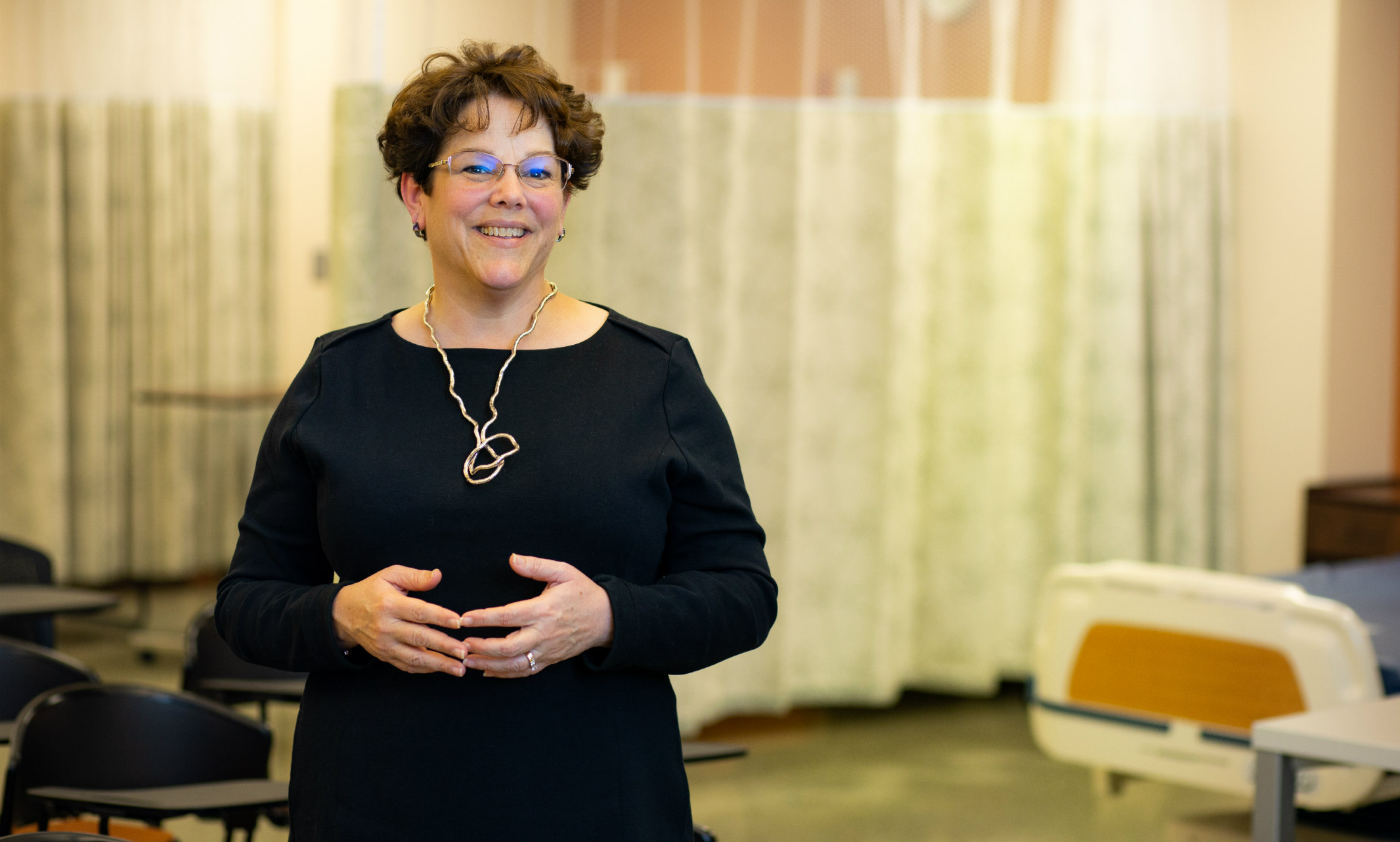
Joy Roberts’ CPR skills were pressed to action
Ever think about giving up a few hours for CPR training? You never know how important they can be.
That’s what Joy Roberts, interim dean at the UMKC School of Nursing and Health Studies, learned first-hand this month when her CPR skills were called to action.
Roberts and her daughter were attending a museum fundraiser in Columbia, Missouri. Her daughter, a Mizzou student studying textiles, was among those presenting artwork at the event.
While the crowd viewed the displays and mingled with refreshments, Roberts suddenly heard a loud crash, thinking someone had knocked over a table. But her daughter could see that a man had collapsed. “Mom,” she said, “you need to get over there.”
“With the holiday season right around the corner, I would encourage people to think about giving the gift of a CPR class to loved ones. As I know first-hand, it could really turn into the gift of life for someone else.” - Joy Roberts, interim dean at the UMKC School of Nursing and Health Studies
Roberts described the scene as chaotic, with people literally screaming and unsure of what to do. She reached the man at the same time as another patron was coming to help. That woman said she was an ICU nurse.
“Good,” Roberts said, “because I’m an old ICU nurse.”
The man had no pulse, no circulation and was not breathing. Roberts performed mouth-to-mouth and the other nurse did chest compressions. “When you’re in the thick of something like that, you have no sense of time,” said Roberts, who couldn’t guess how long they worked on the man.
Finally, he took a few breaths and they got a faint pulse – a sign it’s time to stop CPR. The man was still unconscious but was moving air on his own. Soon, emergency personnel arrived and transported him to a hospital. His current condition is unknown.
Fortunately, the delegation of duties worked out well for the two of nurses.
“She was quite a bit younger so it was probably for the best that she handled compressions,” Roberts said. “And I talk a lot, so I have a big oxygen capacity.”
As a nurse practitioner, Roberts has been called to scenes where her CPR skills were needed and she had access to other medical equipment. But this was the first case where she was armed with only her knowledge of CPR. And in this situation, it appeared the two nurses were the only patrons in the group that knew how to perform the life-saving procedure.
Roberts says it was unclear if the museum had an automated external defibrillator (AED), a portable device that can diagnose and treat life-threatening cardiac events. But she encourages people to note if and where their building has an AED -- and to learn how to use it.
“Knowing CPR is something that was really instilled in me at an early age. It’s such an important skill to have.” - Joy Roberts
Studies have shown that children as young as 9 can learn and retain CPR skills. Roberts was ahead of the curve, having her first CPR class when she was just 7 years old, part of her hometown’s community CPR training following the drowning of a local high school student.
“When you’re 7 and say, only 40 pounds, it’s not easy getting that mannequin’s lungs to go down,” she said.
Roberts took the training again in high school as a required class, something she hopes catches on in more districts across the country.
According to the American Heart Association, more than 350,000 emergency-medical-services (EMS)-assessed out-of-hospital cardiac arrests occur annually in the United States. Of that group, only 46 percent receive the immediate care needed before professional help arrives. “Knowing CPR is something that was really instilled in me at an early age,” said Roberts. “It’s such an important skill to have.”
Inspired by this experience, both her daughter and a UMKC faculty member have already signed up for CPR training - and the UMKC School of Nursing and Health Studies is training its students, faculty and staff Dec. 19. Roberts is encouraging other people and employers to do the same.
“With the holiday season right around the corner, I would encourage people to think about giving the gift of a CPR class to loved ones,” she said. “As I know first-hand, it could really turn into the gift of life for someone else.”
Be a Life Saver
The following groups provide CPR and other life-saving training:
American Heart Association
American Red Cross
The YMCA
In addition to these groups, many cities may offer these types of trainings. Contact your local municipality for more information.
Dec 03, 2019
David Van Horn, a chemistry professor at the University of Missouri-Kansas City, provides an in depth explanation to 41 Action News of what happens...
David Van Horn, a chemistry professor at the University of Missouri-Kansas City, explained that salt works by lowering the freezing point of water, preventing ice from forming on road surfaces. See the report.
Dec 03, 2019
10 students honored for academic excellence, leadership and service
Ten Roos will be honored as Dean of Students Honor Recipients this fall.
Graduating students who have excelled in both academic achievement and service may be nominated for the honor. This program recognizes the exceptional students who maintain high scholastic performance while actively participating in university and community leadership and service activities outside of the classroom.
Shahodat Azimova, School of Biological and Chemical Sciences, nominated by Tammy Welchert
Shelby Chesbro, School of Medicine, nominated by Jignesh Shah and Betsy Hendrick
Jordann Dhuse, School of Medicine, nominated by Stefanie Ellison
Lindsey Gard, School of Biological and Chemical Sciences, nominated by Mary Osbourne and Tammy Welchert
Fiona Isiavwe, Bloch School of Management, nominated by Jessica Elam and Krystal Schwenker
Leah Israel, School of Biological and Chemical Sciences, nominated by Tammy Welchert
Anna Lillig, School of Nursing and Health Studies, nominated by Ursula Gurney
Zach Randall, School of Medicine, nominated by Stefanie Ellison
Marcella Riley, School of Medicine, nominated by Nurry Pirani
Landon Rohowetz, School of Medicine, nominated by Peter Koulen and Betsy Hendrick
Dec 02, 2019
Stuart Hinds, curator of special collections and archives at UMKC University Libraries, was one of the local arts leaders sharing holiday tradition...
“It’s really more of an escape from the holidays, but I like to go by myself to Kauffman Memorial Garden, usually on or as close as possible to the winter solstice,” Hinds said. “I’m drawn to the dormant garden, because it’s a nice place to think about the year that’s passed and the year that is to be on that shortest day of the year — the day of transition from dark to light as the days get longer.” Read the story.
Dec 02, 2019
Study led by UMKC faculty physician suggests many heart surgeries are not necessary.
Some common heart procedures may be more common than they should be, a large-scale study led in part by a Kansas City doctor suggests. John Spertus is a cardiologist at Saint Luke’s Mid America Heart Institute and a professor at the University of Missouri-Kansas City. Read the story.
Dec 01, 2019
UMKC professor interviewed on KCTV5
A long-shot idea from a Kansas City councilman to give up a home Chiefs game to St. Louis is once again, making waves.
It started when Councilman and Mayoral candidate Quinton Lucas tweeted the idea offhand in the fall.
But a recent interview with KCTV5’s sister station in St Louis suggests he may be serious now.
Brent Never, associate professor of public affairs at the Henry W. Bloch School of Management, was interviewed for his take.
Feb 04, 2019
